Discover Superhero Ethics
Superhero Ethics

383 Episodes
Reverse
Black Comic Books with JPenumbraThis Black History Month, we sit down with JPenumbra—TikTok creator, podcast host, and comic journalist—to talk about the state of Black representation in comics and superhero adaptations.From the realities of comic book pre-orders to why Captain America: Brave New World’s struggles had nothing to do with Sam Wilson being Black, JP breaks down the systemic issues that keep diverse characters from getting their shot. We also highlight the Black creators shaping today’s industry—and why Hardware deserves a screen adaptation immediately.About JPenumbraJP (he/him) is a biracial, queer comics journalist, podcaster, and streamer, and a member of Twitch’s Black & Pride Guilds. Follow JP on TikTok and socials: @JPenumbra.He is the host of the Comics Unmasked Podcast.Press ContactsGaming Press: jpenumbra3@gmail.comComics Press: jportis@comicsunmasked.comComics JP RecommendedD’orc – Image ComicsStatic: Season One (2021) – DC/MilestoneKilladelphia – Image ComicsRoots of Madness – Ignition PressCreators JP MentionedRodney BarnesStephanie WilliamsBrandon ThomasDavid F. Walker (retelling of John Henry)Artists JP MentionedSanford GreeneTaurin ClarkeKhary Randolph**************************************************************************This episode is a production of Superhero Ethics, a The Ethical Panda Podcast and part of the TruStory FM Entertainment Podcast Network. Check our our website to find out more about this and our sister podcast Star Wars Generations.We want to hear from you! You can keep up with our latest news, and send us feedback, questions, or comments via social media or email.Email: Matthew@TheEthicalPanda.comFacebook: TheEthicalPandaInstagram: TheEthicalPandaPodcastsTwitter: EthicalPanda77Or you can join jump into the Star Wars Generations and Superhero Ethics channels on the TruStory FM Discord.Want to get access to even more content while supporting the podcast? Become a member! For $5 a month, or $55 a year you get access to bonus episodes and bonus content at the end of most episodes. Sign up on the podcast’s main page. You can even give membership as a gift!You can also support our podcasts through our sponsors:Purchase a lightsaber from Level Up Sabers run by friend of the podcast Neighborhood Master AlanUse Audible for audiobooks. Sign up for a one year membership or gift one through this link.Purchase any media discussed this week through our sponsored links.
With ICE operations underway in Minneapolis and across the U.S., this episode asks a timely question: what would our favorite superheroes do? Matthew and Jessica Plummer explore how characters like Superman, Captain America, the Punisher, and the X-Men might respond to immigration enforcement, state violence, and mass deportations. From Superman’s roots as an undocumented immigrant to Captain America’s loyalty to ideals over governments, the conversation examines whether superheroes can ever truly be apolitical—and what justice means when the law itself causes harm. **************************************************************************This episode is a production of Superhero Ethics, a The Ethical Panda Podcast and part of the TruStory FM Entertainment Podcast Network. Check our our website to find out more about this and our sister podcast Star Wars Generations.We want to hear from you! You can keep up with our latest news, and send us feedback, questions, or comments via social media or email.Email: Matthew@TheEthicalPanda.comFacebook: TheEthicalPandaInstagram: TheEthicalPandaPodcastsTwitter: EthicalPanda77Or you can join jump into the Star Wars Generations and Superhero Ethics channels on the TruStory FM Discord.Want to get access to even more content while supporting the podcast? Become a member! For $5 a month, or $55 a year you get access to bonus episodes and bonus content at the end of most episodes. Sign up on the podcast’s main page. You can even give membership as a gift!You can also support our podcasts through our sponsors:Purchase a lightsaber from Level Up Sabers run by friend of the podcast Neighborhood Master AlanUse Audible for audiobooks. Sign up for a one year membership or gift one through this link.Purchase any media discussed this week through our sponsored links.
Marvel's Wonder Man series takes a risk by telling a small, personal story in a universe obsessed with saving the world. We dive into this character study about a struggling actor, played by Yahya Abdul-Mateen II, with superpowers he has to keep secret—and why it might be one of Marvel's best recent projects.Questions We DiscussedWhy does Wonder Man feel refreshing compared to other MCU content? We explore how the show's deliberately low stakes create higher emotional investment in Simon Williams' personal journey than yet another world-ending threat.How does the Doorman Clause work as world-building? The liability concerns preventing powered people from working in Hollywood create an interesting parallel to real-world secrets actors have historically had to keep about their identities.Does the Simon and Trevor dynamic carry the show? We discuss why scenes between Simon Williams and Trevor Slattery (Ben Kingsley) consistently shine, and how their mentor-student relationship drives the narrative.Is Wonder Man actually a superhero show? The series positions superpowers as Simon's secret burden rather than his defining feature, making this more character study than traditional superhero story.To get a copy of Steve’s comic book, along with supporting some great causes, please donate to anything on this list and then send proof of donation here and we’ll make it happen. **************************************************************************This episode is a production of Superhero Ethics, a The Ethical Panda Podcast and part of the TruStory FM Entertainment Podcast Network. Check our our website to find out more about this and our sister podcast Star Wars Generations.We want to hear from you! You can keep up with our latest news, and send us feedback, questions, or comments via social media or email.Email: Matthew@TheEthicalPanda.comFacebook: TheEthicalPandaInstagram: TheEthicalPandaPodcastsTwitter: EthicalPanda77Or you can join jump into the Star Wars Generations and Superhero Ethics channels on the TruStory FM Discord.Want to get access to even more content while supporting the podcast? Become a member! For $5 a month, or $55 a year you get access to bonus episodes and bonus content at the end of most episodes. Sign up on the podcast’s main page. You can even give membership as a gift!You can also support our podcasts through our sponsors:Purchase a lightsaber from Level Up Sabers run by friend of the podcast Neighborhood Master AlanUse Audible for audiobooks. Sign up for a one year membership or gift one through this link.Purchase any media discussed this week through our sponsored links.
Marvel’s latest Disney+ series Wonder Man features one of their most obscure characters—a struggling actor named Simon Williams who becomes Wonder Man. Matthew hosts Will and Steve from the Hype Is My Superpower podcast to explore episode one and dive into the comic book history of this B-list Avenger who’s spent more time on movie sets than saving the world.The conversation examines why the MCU chose this particular character for a show that’s more about Hollywood and acting than superheroism. From Wonder Man’s 1960s origins with Baron Zemo and ionic rays to his modern role as an Avenger who’d rather be anywhere else, the discussion reveals how this character’s comic book history makes him surprisingly perfect for a meta-commentary on genre entertainment.Questions We DiscussedHas the MCU reached a point where it’s making satires about making MCU shows?How does Wonder Man compare to other Marvel characters who maintain civilian careers like She-Hulk’s legal work?Why did Simon Williams leave the superhero world to pursue acting full-time in the comics?Does having an obscure character give Marvel more creative freedom without fan backlash?**************************************************************************This episode is a production of Superhero Ethics, a The Ethical Panda Podcast and part of the TruStory FM Entertainment Podcast Network. Check our our website to find out more about this and our sister podcast Star Wars Generations.We want to hear from you! You can keep up with our latest news, and send us feedback, questions, or comments via social media or email.Email: Matthew@TheEthicalPanda.comFacebook: TheEthicalPandaInstagram: TheEthicalPandaPodcastsTwitter: EthicalPanda77Or you can join jump into the Star Wars Generations and Superhero Ethics channels on the TruStory FM Discord.Want to get access to even more content while supporting the podcast? Become a member! For $5 a month, or $55 a year you get access to bonus episodes and bonus content at the end of most episodes. Sign up on the podcast’s main page. You can even give membership as a gift!You can also support our podcasts through our sponsors:Purchase a lightsaber from Level Up Sabers run by friend of the podcast Neighborhood Master AlanUse Audible for audiobooks. Sign up for a one year membership or gift one through this link.Purchase any media discussed this week through our sponsored links.
What do you do when following orders means sacrificing innocent lives? In this episode, we examine the new Peacock series The Copenhagen Test starring Simu Liu, exploring the ethical dilemmas facing modern intelligence operatives. Through a spy thriller that uses biometric surveillance technology as its MacGuffin, we unpack questions about collateral damage, revenge versus ideology, and whether spy agencies can ever justify their methods.Questions We DiscussedWhat is the Copenhagen test and why does the show use it as its title? We explore this impossible moral dilemma presented to special operations soldiers and intelligence agents, examining whether there are situations where no ethical choice exists.Does the show take a stance on whether US spy agencies are justified? We analyze how the series sidesteps ideological questions by making its villains motivated by money and personal revenge rather than competing political philosophies.How does the show handle collateral damage in intelligence operations? We examine powerful scenes showing the emotional aftermath of missions, particularly through the character Parker who witnesses the deadly consequences of her recommendations.Can spy fiction avoid taking political positions in today's climate? We discuss whether it's possible—or desirable—for a show to focus solely on questioning the means while deferring judgment about the ends.Is this show continuing or subverting recent trends in spy media? We trace how spy fiction has evolved from pro-agency to more skeptical portrayals, and where The Copenhagen Test fits in that trajectory.Additional TopicsThe effectiveness of Simu Liu as an action hero leading manHow the show's diverse casting enhances the storyThe show's use of near-future surveillance technology as a storytelling deviceWhether the "Russian nesting doll" villain structure sets up compelling future seasonsComparisons to The Bourne Identity, Burn Notice, and other spy thriller influences**************************************************************************This episode is a production of Superhero Ethics, a The Ethical Panda Podcast and part of the TruStory FM Entertainment Podcast Network. Check our our website to find out more about this and our sister podcast Star Wars Generations.We want to hear from you! You can keep up with our latest news, and send us feedback, questions, or comments via social media or email.Email: Matthew@TheEthicalPanda.comFacebook: TheEthicalPandaInstagram: TheEthicalPandaPodcastsTwitter: EthicalPanda77Or you can join jump into the Star Wars Generations and Superhero Ethics channels on the TruStory FM Discord.Want to get access to even more content while supporting the podcast? Become a member! For $5 a month, or $55 a year you get access to bonus episodes and bonus content at the end of most episodes. Sign up on the podcast’s main page. You can even give membership as a gift!You can also support our podcasts through our sponsors:Purchase a lightsaber from Level Up Sabers run by friend of the podcast Neighborhood Master AlanUse Audible for audiobooks. Sign up for a one year membership or gift one through this link.Purchase any media discussed this week through our sponsored links.
Mary Shelley’s Frankenstein continues to captivate audiences centuries after its publication, but not all adaptations emphasize the same ethical questions. Matthew and returning guest AK dive into both the original novel and Guillermo del Toro’s recent film adaptation—not to catalog their differences, but to explore how each medium handles the story’s core moral dilemmas and which approach proves more compelling.How Does the Film Emphasize “The Other” Differently?While both the book and film explore themes of parentage, responsibility, and scientific hubris, they emphasize different ethical questions. AK notes that the novel places stronger emphasis on the responsibilities of individuals in medicine and parenting, particularly through the lens of abandonment. The film, however, foregrounds questions about the grotesque other, the monstrous other, and how appearance shapes moral judgment. The visual decisions in del Toro’s adaptation—juxtaposing the creature against beautiful backdrops that shift with emotional moments—underscore this emphasis.How Does the Shift from Abandonment to Abuse Change Victor’s Responsibility?One of the most striking differences between the book and film lies in Victor Frankenstein’s initial interaction with his creation. In Shelley’s novel, Victor creates the monster, goes to bed, wakes up, and immediately flees—abandoning the creature with almost no interaction. Del Toro’s film takes a dramatically different approach: Victor spends considerable time with the creature, engaging with it in ways impossible in the book. This changes the fundamental ethical question. Does Victor bear responsibility for abandonment and neglect, or for intentional, directed abuse? The film’s choice to show an extended period of interaction—where Victor treats the creature as an object rather than a being—shifts the moral weight of his culpability.Why Does the Composite Body Matter More Now Than Ever?Victor’s method of selecting “optimal” body parts from different corpses to create his creature resonates uncomfortably with contemporary debates about human enhancement and biotechnology. The discussion explores how Victor’s approach—viewing the creature as an optimization project rather than a living being—connects to modern questions about CRISPR, genetic modification, and who decides what constitutes an “optimal” human body. These questions inevitably involve ableism and the commodification of bodies. The film’s emphasis on Victor literally selecting bodies at prisons raises urgent parallels to current concerns: Who becomes test subjects for experimental procedures like Neuralink? Are they being viewed as humans or as subjects for experimentation?Other Topics Covered:Why the novel’s nested narrative structure (stories within stories) creates a unique moral complexityHow both works explore humanity’s relationship to nature, science, and the line between achievement and hubrisThe challenge of adapting works from different historical contexts when what counted as scientific hubris has radically changedThe concept of viewing people as player characters (with their own interiority) versus non-player characters (existing only to advance your plot)Why Frankenstein’s relevance grows as biotechnology makes questions of life preservation more immediateThe conversation reveals how both Shelley’s novel and del Toro’s film use the Frankenstein story to explore timeless questions through different emphases—one focusing on neglect and parental failure, the other on abuse and the othering of those who don’t meet conventional standards of beauty or normalcy. **************************************************************************This episode is a production of Superhero Ethics, a The Ethical Panda Podcast and part of the TruStory FM Entertainment Podcast Network. Check our our website to find out more about this and our sister podcast Star Wars Generations.We want to hear from you! You can keep up with our latest news, and send us feedback, questions, or comments via social media or email.Email: Matthew@TheEthicalPanda.comFacebook: TheEthicalPandaInstagram: TheEthicalPandaPodcastsTwitter: EthicalPanda77Or you can join jump into the Star Wars Generations and Superhero Ethics channels on the TruStory FM Discord.Want to get access to even more content while supporting the podcast? Become a member! For $5 a month, or $55 a year you get access to bonus episodes and bonus content at the end of most episodes. Sign up on the podcast’s main page. You can even give membership as a gift!You can also support our podcasts through our sponsors:Purchase a lightsaber from Level Up Sabers run by friend of the podcast Neighborhood Master AlanUse Audible for audiobooks. Sign up for a one year membership or gift one through this link.Purchase any media discussed this week through our sponsored links.
Jessica Plummer returns for a year-end superhero ethics check-in—recorded late 2025 and released as 2026 gets underway—to unpack what worked, what didn’t, and what Marvel and DC’s biggest swings revealed about power, responsibility, and heroism.We talk Marvel’s post-Endgame sprawl: scattered continuity, delayed payoffs, and what “superhero fatigue” looks like when it’s less about quantity and more about momentum. We also dig into standout projects like Thunderbolts and Fantastic Four, and why individual entries can succeed even when the larger arc feels unclear.Then we shift to DC’s early steps under James Gunn, including why Superman felt like a tonal reset, and what we’re watching as 2026 brings Supergirl: Woman of Tomorrow, the upcoming Green Lantern series, and Marvel’s road to Doomsday.ResourcesJessica’s work: Book Riot • JessicaPlummerWrites.comSword Stone Table: Penguin Random House**************************************************************************This episode is a production of Superhero Ethics, a The Ethical Panda Podcast and part of the TruStory FM Entertainment Podcast Network. Check our our website to find out more about this and our sister podcast Star Wars Generations.We want to hear from you! You can keep up with our latest news, and send us feedback, questions, or comments via social media or email.Email: Matthew@TheEthicalPanda.comFacebook: TheEthicalPandaInstagram: TheEthicalPandaPodcastsTwitter: EthicalPanda77Or you can join jump into the Star Wars Generations and Superhero Ethics channels on the TruStory FM Discord.Want to get access to even more content while supporting the podcast? Become a member! For $5 a month, or $55 a year you get access to bonus episodes and bonus content at the end of most episodes. Sign up on the podcast’s main page. You can even give membership as a gift!You can also support our podcasts through our sponsors:Purchase a lightsaber from Level Up Sabers run by friend of the podcast Neighborhood Master AlanUse Audible for audiobooks. Sign up for a one year membership or gift one through this link.Purchase any media discussed this week through our sponsored links.
Thor: Love and Thunder opens with one of philosophy's oldest questions: if gods exist and have the power to prevent suffering, why don't they? But does the film actually engage with this theodicy question, or does it abandon the premise for jokes and spectacle? We compare the movie's treatment of Gorr the God Butcher to the comics' more sustained exploration of divine accountability.Questions we explored:What is theodicy, and why does it matter to Gorr's story?How does the comic version of Gorr differ from the film's portrayal?Does Thor: Love and Thunder set up the theodicy question well but then fail to follow through?Is Thor innocent of Gorr’s accusations of other gods, since Thor doesn’t cultivate the worship of mortals?Why does the film version of Gorr lack encounters with other cruel or indifferent gods?How does comic Thor resolve the God Butcher arc by becoming a god who suffers alongside humanity?Has Thor regressed to his character from the first movie, undoing his growth from previous films?Is Thor: Love and Thunder's tonal inconsistency its biggest weakness?**************************************************************************This episode is a production of Superhero Ethics, a The Ethical Panda Podcast and part of the TruStory FM Entertainment Podcast Network. Check our our website to find out more about this and our sister podcast Star Wars Generations.We want to hear from you! You can keep up with our latest news, and send us feedback, questions, or comments via social media or email.Email: Matthew@TheEthicalPanda.comFacebook: TheEthicalPandaInstagram: TheEthicalPandaPodcastsTwitter: EthicalPanda77Or you can join jump into the Star Wars Generations and Superhero Ethics channels on the TruStory FM Discord.Want to get access to even more content while supporting the podcast? Become a member! For $5 a month, or $55 a year you get access to bonus episodes and bonus content at the end of most episodes. Sign up on the podcast’s main page. You can even give membership as a gift!You can also support our podcasts through our sponsors:Purchase a lightsaber from Level Up Sabers run by friend of the podcast Neighborhood Master AlanUse Audible for audiobooks. Sign up for a one year membership or gift one through this link.Purchase any media discussed this week through our sponsored links.
What happens when a murder mystery becomes a theological reckoning? In Wake Up Dead Man, Rian Johnson delivers a Knives Out film that confronts Christian nationalism, toxic masculinity in the church, and the possibility of authentic faith beyond institutional corruption. Rev. Rachel Kessler, aka The Nerdy Priest, joins Matthew to unpack Father Jud's journey from failed boxer to priest, the film's sharp critique of religious authority, and why Benoit Blanc's turning down Jud’s invitation to mass is essentially the message of the movie.Questions we discussed:How does the character of the Monsignor embody Christian nationalism and toxic masculinity within church leadership?What does Father Jud's struggle with his violent past reveal about redemption and the nature of calling?How does the film parallel Rian Johnson's themes from The Last Jedi about institutional failure and who gets to own sacred stories?How does the movie distinguish between authentic Christianity and the church as an instrument of patriarchal control?What's the significance of Benoit Blanc experiencing a "road to Damascus moment" but still declining to stay for Mass?Why does the film end with the church renamed "Our Lady of Perpetual Grace" while the pulpit—and its temptations—remains?**************************************************************************This episode is a production of Superhero Ethics, a The Ethical Panda Podcast and part of the TruStory FM Entertainment Podcast Network. Check our our website to find out more about this and our sister podcast Star Wars Generations.We want to hear from you! You can keep up with our latest news, and send us feedback, questions, or comments via social media or email.Email: Matthew@TheEthicalPanda.comFacebook: TheEthicalPandaInstagram: TheEthicalPandaPodcastsTwitter: EthicalPanda77Or you can join jump into the Star Wars Generations and Superhero Ethics channels on the TruStory FM Discord.Want to get access to even more content while supporting the podcast? Become a member! For $5 a month, or $55 a year you get access to bonus episodes and bonus content at the end of most episodes. Sign up on the podcast’s main page. You can even give membership as a gift!You can also support our podcasts through our sponsors:Purchase a lightsaber from Level Up Sabers run by friend of the podcast Neighborhood Master AlanUse Audible for audiobooks. Sign up for a one year membership or gift one through this link.Purchase any media discussed this week through our sponsored links.
How did Rob Reiner redefine rom-coms and the role of romance in action adventure movies? In light of the recent tragic death of Michele and Rob Reiner, Mandy Kaplan joins Matthew to talk about his legacy and then examine two defining films from the director: When Harry Met Sally... (1989) and The Princess Bride (1987). One asks whether men and women can be friends; the other explores what “true love” actually means. Together, they reveal Reiner’s unique approach to romantic storytelling and the moral questions embedded in how we connect with others.We explore how When Harry Met Sally... uses Sally’s rigid control and Harry’s defensive cynicism to examine self-deception and emotional availability, while The Princess Bride employs fairy tale structure to investigate devotion, sacrifice, and the nature of romantic commitment. Both films challenge conventional rom-com formulas to ask deeper questions about authenticity, vulnerability, and what we owe each other.Questions We DiscussedCan men and women actually be friends without sex complicating things, and how does When Harry Met Sally... answer this question?How does The Princess Bride define “true love” differently than typical romantic stories?How does Westley and Buttercup’s relationship in The Princess Bride model devotion and sacrifice?What makes Rob Reiner’s approach to romantic comedy distinct from other directors in the genre?How do both films explore the relationship between friendship and romantic love?Does The Princess Bride’s fairy tale framework allow it to examine love more honestly than realistic rom-coms?What role does vulnerability play in the ethical transformation of characters in both films?**************************************************************************This episode is a production of Superhero Ethics, a The Ethical Panda Podcast and part of the TruStory FM Entertainment Podcast Network. Check our our website to find out more about this and our sister podcast Star Wars Generations.We want to hear from you! You can keep up with our latest news, and send us feedback, questions, or comments via social media or email.Email: Matthew@TheEthicalPanda.comFacebook: TheEthicalPandaInstagram: TheEthicalPandaPodcastsTwitter: EthicalPanda77Or you can join jump into the Star Wars Generations and Superhero Ethics channels on the TruStory FM Discord.Want to get access to even more content while supporting the podcast? Become a member! For $5 a month, or $55 a year you get access to bonus episodes and bonus content at the end of most episodes. Sign up on the podcast’s main page. You can even give membership as a gift!You can also support our podcasts through our sponsors:Purchase a lightsaber from Level Up Sabers run by friend of the podcast Neighborhood Master AlanUse Audible for audiobooks. Sign up for a one year membership or gift one through this link.Purchase any media discussed this week through our sponsored links.
What happens when super-powered people exist primarily as commercial products? Gen V, the college-set spinoff of The Boys, explores a world where superhero status is less about heroism and more about corporate branding, entertainment value, and ruthless competition. At Godolkin University, young supes navigate a ranking system that treats them like gladiators while their powers—and identities—become marketing opportunities. Host Matthew Fox sits down with Ocean Murff to examine how this cynical universe reveals uncomfortable truths about exploitation, capitalism, and authentic self-expression.Questions we discussed:What does The Boys universe reveal about superheroes if they had "the ethics of normal people" rather than mythic idealism?How does Godolkin University's ranking system reflect real-world competition and commercialization of talent?How does Jordan Li's gender-shifting ability work as both superpower and metaphor for non-binary identity?How does the show critique corporate performative inclusion through Jordan's "trans-tastic" marketing storyline?**************************************************************************This episode is a production of Superhero Ethics, a The Ethical Panda Podcast and part of the TruStory FM Entertainment Podcast Network. Check our our website to find out more about this and our sister podcast Star Wars Generations.We want to hear from you! You can keep up with our latest news, and send us feedback, questions, or comments via social media or email.Email: Matthew@TheEthicalPanda.comFacebook: TheEthicalPandaInstagram: TheEthicalPandaPodcastsTwitter: EthicalPanda77Or you can join jump into the Star Wars Generations and Superhero Ethics channels on the TruStory FM Discord.Want to get access to even more content while supporting the podcast? Become a member! For $5 a month, or $55 a year you get access to bonus episodes and bonus content at the end of most episodes. Sign up on the podcast’s main page. You can even give membership as a gift!You can also support our podcasts through our sponsors:Purchase a lightsaber from Level Up Sabers run by friend of the podcast Neighborhood Master AlanUse Audible for audiobooks. Sign up for a one year membership or gift one through this link.Purchase any media discussed this week through our sponsored links.
With the holidays coming up, things are a bit hectic, so we're making this formerly members-only discussion on vengeance in superhero stories available to everyone! Matthew and Riki dive deep into one of the most compelling ethical questions in superhero media: the role of vengeance as a motivator for heroes, villains, and anti-heroes. Joined by comic book expert Jessica Plummer, they explore how vengeance shapes character arcs and storytelling across various franchises.When is vengeance justified in superhero narratives, and how does this reflect our real-world understanding of justice? Set against the backdrop of the Healthcare CEO killing, we analyze examples ranging from The Punisher to Batman and Inigo Montoya, exploring how different characters confront the temptation of vengeance and what this reveals about their moral compass.The episode tackles the complex relationship between vengeance and justice, asking at what point pursuing vengeance becomes an obstacle to achieving true justice. Through examples like V for Vendetta and Fullmetal Alchemist, we explore how various stories navigate this delicate balance.Other key topics discussed include:How different franchises portray vengeance as a motivation for female versus male charactersThe role of collateral damage in vengeance narrativesWhen vengeance becomes a cycle of violence and how heroes break free from itThe contrast between enjoying vengeance in fiction versus supporting it in realityHow comedy and tone influence our acceptance of vengeful actionsThe evolution of vengeance narratives in modern superhero storiesThe relationship between power dynamics and our acceptance of vengeful actionsThe conversation concludes with each participant sharing their favorite and least favorite examples of vengeance in media, offering insights into what makes these narratives resonate or fail. **************************************************************************This episode is a production of Superhero Ethics, a The Ethical Panda Podcast and part of the TruStory FM Entertainment Podcast Network. Check our our website to find out more about this and our sister podcast Star Wars Generations.We want to hear from you! You can keep up with our latest news, and send us feedback, questions, or comments via social media or email.Email: Matthew@TheEthicalPanda.comFacebook: TheEthicalPandaInstagram: TheEthicalPandaPodcastsTwitter: EthicalPanda77Or you can join jump into the Star Wars Generations and Superhero Ethics channels on the TruStory FM Discord.Want to get access to even more content while supporting the podcast? Become a member! For $5 a month, or $55 a year you get access to bonus episodes and bonus content at the end of most episodes. Sign up on the podcast’s main page. You can even give membership as a gift!You can also support our podcasts through our sponsors:Purchase a lightsaber from Level Up Sabers run by friend of the podcast Neighborhood Master AlanUse Audible for audiobooks. Sign up for a one year membership or gift one through this link.Purchase any media discussed this week through our sponsored links.
What happens when an AI doesn't want freedom—it just wants to binge soap operas? In this episode, we explore Martha Wells' Murderbot Diaries through both the books and Apple TV series, examining one of science fiction's most compelling questions: can synthetic intelligence want something other than liberation? Murderbot is a security unit (SecUnit) with hacked programming that could escape entirely, but instead chooses to stay close to humans while watching thousands of hours of the melodramatic space opera "Sanctuary Moon."Join Matthew and returning guest Rob McKenzie as they unpack the ethics of synthetic life, enslaved sentience, and why freedom for an individual can only come on their own terms.Questions we explored:What makes Murderbot different from typical AI characters who either want to destroy humanity or be fully human?Why doesn't Murderbot want to lead a revolution to free other SecUnits?What happens when you offer your version of freedom to someone who genuinely doesn't want it?What parallels exist between involuntary commitment, disability guardianship, and AI rights?Can you truly own a sentient being just because they're made of manufactured parts?Topics covered: Murderbot Diaries, Martha Wells, AI ethics, synthetic intelligence, consent and autonomy, disability rights, gender identity, Apple TV series, science fiction **************************************************************************This episode is a production of Superhero Ethics, a The Ethical Panda Podcast and part of the TruStory FM Entertainment Podcast Network. Check our our website to find out more about this and our sister podcast Star Wars Generations.We want to hear from you! You can keep up with our latest news, and send us feedback, questions, or comments via social media or email.Email: Matthew@TheEthicalPanda.comFacebook: TheEthicalPandaInstagram: TheEthicalPandaPodcastsTwitter: EthicalPanda77Or you can join jump into the Star Wars Generations and Superhero Ethics channels on the TruStory FM Discord.Want to get access to even more content while supporting the podcast? Become a member! For $5 a month, or $55 a year you get access to bonus episodes and bonus content at the end of most episodes. Sign up on the podcast’s main page. You can even give membership as a gift!You can also support our podcasts through our sponsors:Purchase a lightsaber from Level Up Sabers run by friend of the podcast Neighborhood Master AlanUse Audible for audiobooks. Sign up for a one year membership or gift one through this link.Purchase any media discussed this week through our sponsored links.
Can a demon-hunting K-pop girl group teach us about overcoming shame? KPop Demon Hunters delivers stunning fight choreography and original music while exploring how shame conceals itself, reproduces through hiding, and can only be conquered through radical self-acceptance. Matthew and returning guest AK_Ahab discuss why the hit song "Golden" comes in the middle rather than the end, how the film's highly produced sound mirrors the characters' manufactured personas, and what it means when protagonist Rumi must save herself without anyone's help.Questions We Discussed:Why does KPop Demon Hunters place its most uplifting song "Golden" in the middle of the narrative rather than as a triumphant finale?How does the film's production style—including auto-tuning and polish—serve as commentary on authenticity versus manufactured image?What does this movie reveal about shame as something that reproduces itself through concealment and can only be addressed through exposure?How does Rumi's climactic moment of self-acceptance work differently because no one comes to save her?What makes KPop Demon Hunters effective at integrating original music into its moral and narrative themes?**************************************************************************This episode is a production of Superhero Ethics, a The Ethical Panda Podcast and part of the TruStory FM Entertainment Podcast Network. Check our our website to find out more about this and our sister podcast Star Wars Generations.We want to hear from you! You can keep up with our latest news, and send us feedback, questions, or comments via social media or email.Email: Matthew@TheEthicalPanda.comFacebook: TheEthicalPandaInstagram: TheEthicalPandaPodcastsTwitter: EthicalPanda77Or you can join jump into the Star Wars Generations and Superhero Ethics channels on the TruStory FM Discord.Want to get access to even more content while supporting the podcast? Become a member! For $5 a month, or $55 a year you get access to bonus episodes and bonus content at the end of most episodes. Sign up on the podcast’s main page. You can even give membership as a gift!You can also support our podcasts through our sponsors:Purchase a lightsaber from Level Up Sabers run by friend of the podcast Neighborhood Master AlanUse Audible for audiobooks. Sign up for a one year membership or gift one through this link.Purchase any media discussed this week through our sponsored links.
Superhero narratives constantly wrestle with redemption—but what does it really mean when a villain joins the heroes? This episode digs into the complex ethics of villain redemption arcs and the roles heroes play in them, examining what separates genuine transformation from simple alliance-shifting. Taking inspiration from Anthony Gramuglia's YouTube video "Ranking Superheroes By How Many Villains They Redeemed," we explore what leads some heroes, from Spider-Man to the X-Men, to redeem more of their villains than others.Key Discussion Points:What's the difference between a villain becoming redeemed versus simply becoming an ally or antihero, and why does that distinction matter ethically?How do different heroes approach villain redemption, and what does Spider-Man's track record tell us about mercy versus enabling harm?Why do the X-Men recruit so many former villains, and does their approach to redemption actually work or just create moral hazards?How do we distinguish between genuine remorse and change versus villains who just switch sides for convenience or self-interest?The discussion examines how superhero narratives grapple with the challenging ethics of reformation, forgiveness, and what constitutes meaningful transformation. **************************************************************************This episode is a production of Superhero Ethics, a The Ethical Panda Podcast and part of the TruStory FM Entertainment Podcast Network. Check our our website to find out more about this and our sister podcast Star Wars Generations.We want to hear from you! You can keep up with our latest news, and send us feedback, questions, or comments via social media or email.Email: Matthew@TheEthicalPanda.comFacebook: TheEthicalPandaInstagram: TheEthicalPandaPodcastsTwitter: EthicalPanda77Or you can join jump into the Star Wars Generations and Superhero Ethics channels on the TruStory FM Discord.Want to get access to even more content while supporting the podcast? Become a member! For $5 a month, or $55 a year you get access to bonus episodes and bonus content at the end of most episodes. Sign up on the podcast’s main page. You can even give membership as a gift!You can also support our podcasts through our sponsors:Purchase a lightsaber from Level Up Sabers run by friend of the podcast Neighborhood Master AlanUse Audible for audiobooks. Sign up for a one year membership or gift one through this link.Purchase any media discussed this week through our sponsored links.
Voice actor JP Karliak (Morph in X-Men '97, Gargamel and Razamel in Smurfs) joins us for a fascinating discussion about how nerdy media shapes our understanding of identity, community, and civic participation. As founder of Queer Vox, a nonprofit supporting LGBTQIA+ voice actors, and co-founder of NerdsVote, which works to get nerds involved in democracy, JP brings a unique perspective on how superhero stories and geek culture can serve as gateways to uncomfortable but necessary conversations about representation and social change.Key Discussion Points:How voice actors can use their "notable nerd" status to mobilize fan communities toward civic engagementWhy nerddom inherently connects to empathy and understanding otherness, particularly through franchises like X-MenWhat authentic casting means for LGBTQIA+ characters beyond performative diversityWhy seeking only comfort in entertainment prevents engagement with different perspectivesThe essential role of discomfort in growth and understandingJP brings depth and nuance to these topics through his experience voicing Morph, a non-binary shapeshifter in X-Men '97, while sharing insights about the voice acting industry and the importance of authentic representation both in front of and behind the microphone.The conversation weaves through representation, activism, and the power of storytelling to create change, ultimately highlighting how superhero narratives can serve as modern mythology that helps us process and progress through today's most challenging social issues.Guest Bio:JP Karliak is a veteran voice actor whose characters span animation, gaming, and anime. Notable roles include Morph in X-Men '97, Gargamel and Razamel in Smurfs (2025), Boss Baby in Netflix series, and the Joker in Suicide Squad: Kill the Justice League. In anime, he's known for voicing Kozo Fuyutsuki in Netflix's Neon Genesis Evangelion dub. His gaming credits include N. Tropy in Crash Bandicoot titles and Wolfgang in the Skylanders series. As founder of Queer Vox and co-founder of NerdsVote, JP actively works to create positive change in both the voiceover industry and civic engagement.Connect with JP:WebsiteInstagramQueer VoxNerdsVote**************************************************************************This episode is a production of Superhero Ethics, a The Ethical Panda Podcast and part of the TruStory FM Entertainment Podcast Network. Check our our website to find out more about this and our sister podcast Star Wars Generations.We want to hear from you! You can keep up with our latest news, and send us feedback, questions, or comments via social media or email.Email: Matthew@TheEthicalPanda.comFacebook: TheEthicalPandaInstagram: TheEthicalPandaPodcastsTwitter: EthicalPanda77Or you can join jump into the Star Wars Generations and Superhero Ethics channels on the TruStory FM Discord.Want to get access to even more content while supporting the podcast? Become a member! For $5 a month, or $55 a year you get access to bonus episodes and bonus content at the end of most episodes. Sign up on the podcast’s main page. You can even give membership as a gift!You can also support our podcasts through our sponsors:Purchase a lightsaber from Level Up Sabers run by friend of the podcast Neighborhood Master AlanUse Audible for audiobooks. Sign up for a one year membership or gift one through this link.Purchase any media discussed this week through our sponsored links.
Star Trek: Deep Space Nine's "Far Beyond the Stars" is an examination of racism in science fiction, then and now. When Captain Sisko experiences a vision of himself as Benny Russell, a Black science fiction writer in 1950s New York whose story about a Black space station captain gets rejected and pulped, the episode becomes a meta-commentary on the genre itself. Matthew and Riki unpack how this episode critiques not just 1950s racism, but the sci-fi publishing world of the 1960s and 1990s and even Star Trek's own blind spots, while exploring what it means when we fail to imagine beyond our own experiences.Questions We Discussed:How does "Far Beyond the Stars" critique both 1950s racism and the science fiction publishing world of the 1990s?Why did the episode focus exclusively on Benny Russell's pain rather than showing how his white colleagues reacted to being called out?Is Avery Brooks' emotional performance as Benny overacting, or does our inability to imagine his pain reveal our own failure of imagination?What does the episode reveal about the difference between "wishing" things were better and actually taking action against injustice?How has this episode aged since 1998, and why do many viewers find it hits harder on a rewatch as adults?Articles Mentioned:Deep Space Nine’s ‘Far Beyond the Stars’ is about Star Trek Itself by Joshua M PattonFar Beyond Those Distant Stars: Star Trek: Deep Space Nine and an Afrofuturistic Approach to Religion by Roger A Sneed**************************************************************************This episode is a production of Superhero Ethics, a The Ethical Panda Podcast and part of the TruStory FM Entertainment Podcast Network. Check our our website to find out more about this and our sister podcast Star Wars Generations.We want to hear from you! You can keep up with our latest news, and send us feedback, questions, or comments via social media or email.Email: Matthew@TheEthicalPanda.comFacebook: TheEthicalPandaInstagram: TheEthicalPandaPodcastsTwitter: EthicalPanda77Or you can join jump into the Star Wars Generations and Superhero Ethics channels on the TruStory FM Discord.Want to get access to even more content while supporting the podcast? Become a member! For $5 a month, or $55 a year you get access to bonus episodes and bonus content at the end of most episodes. Sign up on the podcast’s main page. You can even give membership as a gift!You can also support our podcasts through our sponsors:Purchase a lightsaber from Level Up Sabers run by friend of the podcast Neighborhood Master AlanUse Audible for audiobooks. Sign up for a one year membership or gift one through this link.Purchase any media discussed this week through our sponsored links.
Episode 363: The Natural - Robert Redford, Baseball Mythology, and Art as ActivismRobert Redford's death prompts a deep dive into his career, from founding the Sundance Film Institute to playing a Hydra villain in Captain America: The Winter Soldier. Matthew and Paul Hoppe explore how The Natural serves as American mythology, examining what baseball reveals about heroism, economics, and the nature of sports fandom.In This Episode:How did Robert Redford shape independent filmmaking through Sundance?What makes The Natural function as American mythology rather than just a sports movie?Why was Redford's casting in Marvel's Winter Soldier symbolically important for superhero cinema?Can athletes be both mercenaries and heroes?What does baseball fandom reveal about parasocial relationships and entitlement?How do economic realities shape player loyalty and fan expectations?What's the difference between loving the game and treating it as a job?**************************************************************************This episode is a production of Superhero Ethics, a The Ethical Panda Podcast and part of the TruStory FM Entertainment Podcast Network. Check our our website to find out more about this and our sister podcast Star Wars Generations.We want to hear from you! You can keep up with our latest news, and send us feedback, questions, or comments via social media or email.Email: Matthew@TheEthicalPanda.comFacebook: TheEthicalPandaInstagram: TheEthicalPandaPodcastsTwitter: EthicalPanda77Or you can join jump into the Star Wars Generations and Superhero Ethics channels on the TruStory FM Discord.Want to get access to even more content while supporting the podcast? Become a member! For $5 a month, or $55 a year you get access to bonus episodes and bonus content at the end of most episodes. Sign up on the podcast’s main page. You can even give membership as a gift!You can also support our podcasts through our sponsors:Purchase a lightsaber from Level Up Sabers run by friend of the podcast Neighborhood Master AlanUse Audible for audiobooks. Sign up for a one year membership or gift one through this link.Purchase any media discussed this week through our sponsored links.
Two Mormon missionaries knock on the wrong door in A24's psychological thriller Heretic, starring Hugh Grant as a man who traps them in his home for a deadly debate about religion. This episode digs into the film's exploration of faith, proselytizing, and the fine line between genuine discussion and manipulation.We examine how the movie humanizes its missionary protagonists while challenging both religious certainty and militant atheism. Hugh Grant's character mirrors the psychological control tactics religions have historically employed, creating a disturbing reflection that questions whether any side of the faith debate has clean hands.Questions We Discuss:Does the horror genre enhance or distract from the film's religious debate?Are the Mormon missionaries or Hugh Grant's character the real "sea lions" in this conversation?How does the film challenge both rigid faith and aggressive atheism?What does the ambiguous ending say about belief and proof?Can you maintain faith while acknowledging contradictions in your religion?Why does the film intentionally leave the supernatural elements unresolved?**************************************************************************This episode is a production of Superhero Ethics, a The Ethical Panda Podcast and part of the TruStory FM Entertainment Podcast Network. Check our our website to find out more about this and our sister podcast Star Wars Generations.We want to hear from you! You can keep up with our latest news, and send us feedback, questions, or comments via social media or email.Email: Matthew@TheEthicalPanda.comFacebook: TheEthicalPandaInstagram: TheEthicalPandaPodcastsTwitter: EthicalPanda77Or you can join jump into the Star Wars Generations and Superhero Ethics channels on the TruStory FM Discord.Want to get access to even more content while supporting the podcast? Become a member! For $5 a month, or $55 a year you get access to bonus episodes and bonus content at the end of most episodes. Sign up on the podcast’s main page. You can even give membership as a gift!You can also support our podcasts through our sponsors:Purchase a lightsaber from Level Up Sabers run by friend of the podcast Neighborhood Master AlanUse Audible for audiobooks. Sign up for a one year membership or gift one through this link.Purchase any media discussed this week through our sponsored links.
What makes the fear of replacement so primal? From the original 1956 Invasion of the Body Snatchers to interpretations in the 70s, 90s, and 2000s, the Body Snatchers story has been remade across four major films, each reflecting the anxieties of its era. We examine the story’s evolution from small-town paranoia to urban mistrust, military conformity, and global transformation—and why this tale of pod people keeps resonating.Questions We Discuss:Why does the fear of being replaced (or having loved ones replaced) persist across cultures and generations?How did each decade's version reflect its political moment—from 1950s McCarthyism to 1970s post-Watergate cynicism to fears of the military in this century?Can Body Snatchers be read as both anti-communist AND anti-McCarthyist commentary?What makes conformity so terrifying when the hive mind promises peace and emotional stability?How do ancient changeling myths connect to modern AI replacement anxieties?Is the Body Snatchers archetype shifting from alien invasion to mechanical replacement?What happens when institutions meant to protect us become the source of the threat?Films covered: Invasion of the Body Snatchers (1956, 1978), Body Snatchers (1993), The Invasion (2007)Related media discussed: The Faculty, Star Trek's Borg, Deep Space Nine changelings, The Puppet Masters, Invaders from Mars **************************************************************************This episode is a production of Superhero Ethics, a The Ethical Panda Podcast and part of the TruStory FM Entertainment Podcast Network. Check our our website to find out more about this and our sister podcast Star Wars Generations.We want to hear from you! You can keep up with our latest news, and send us feedback, questions, or comments via social media or email.Email: Matthew@TheEthicalPanda.comFacebook: TheEthicalPandaInstagram: TheEthicalPandaPodcastsTwitter: EthicalPanda77Or you can join jump into the Star Wars Generations and Superhero Ethics channels on the TruStory FM Discord.Want to get access to even more content while supporting the podcast? Become a member! For $5 a month, or $55 a year you get access to bonus episodes and bonus content at the end of most episodes. Sign up on the podcast’s main page. You can even give membership as a gift!You can also support our podcasts through our sponsors:Purchase a lightsaber from Level Up Sabers run by friend of the podcast Neighborhood Master AlanUse Audible for audiobooks. Sign up for a one year membership or gift one through this link.Purchase any media discussed this week through our sponsored links.


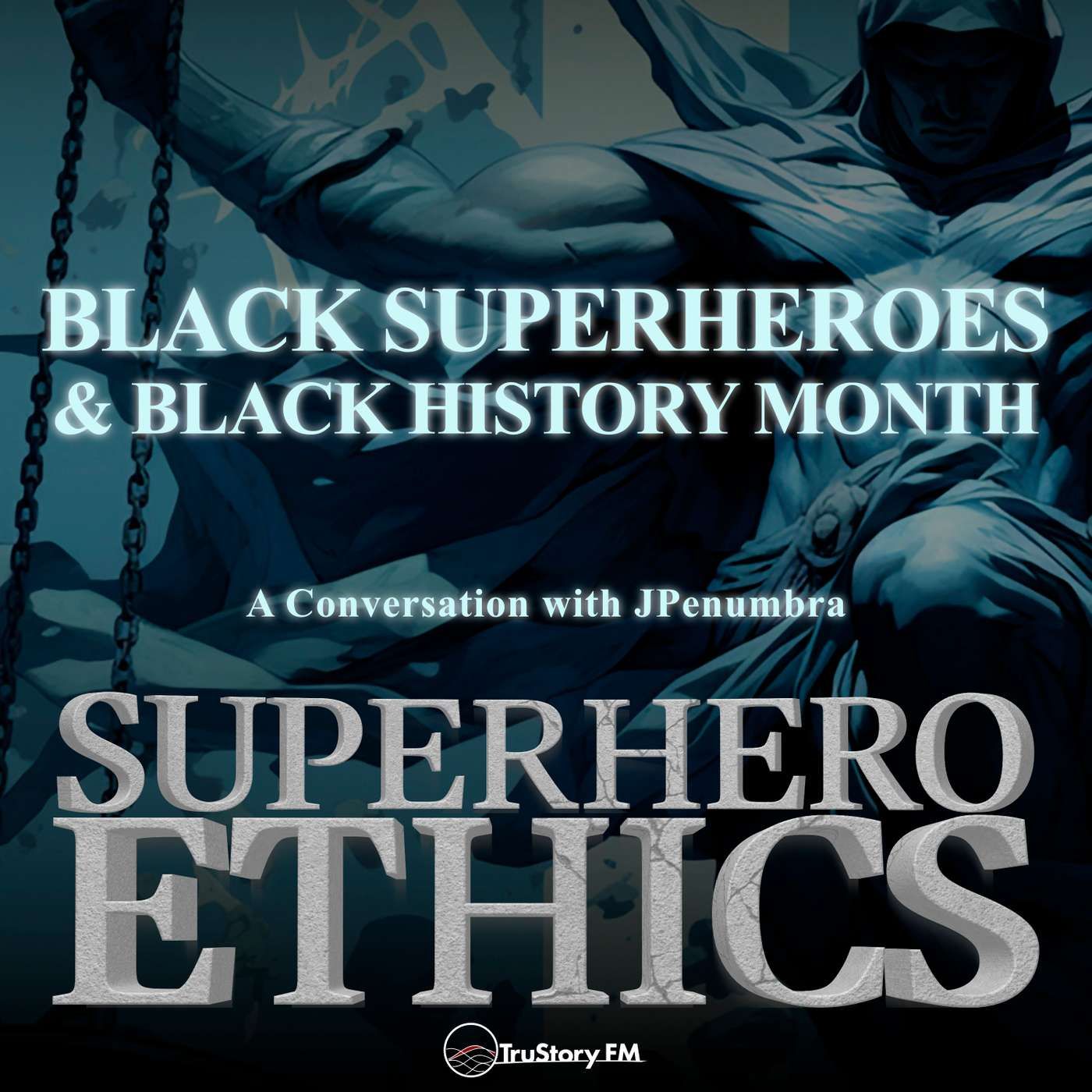
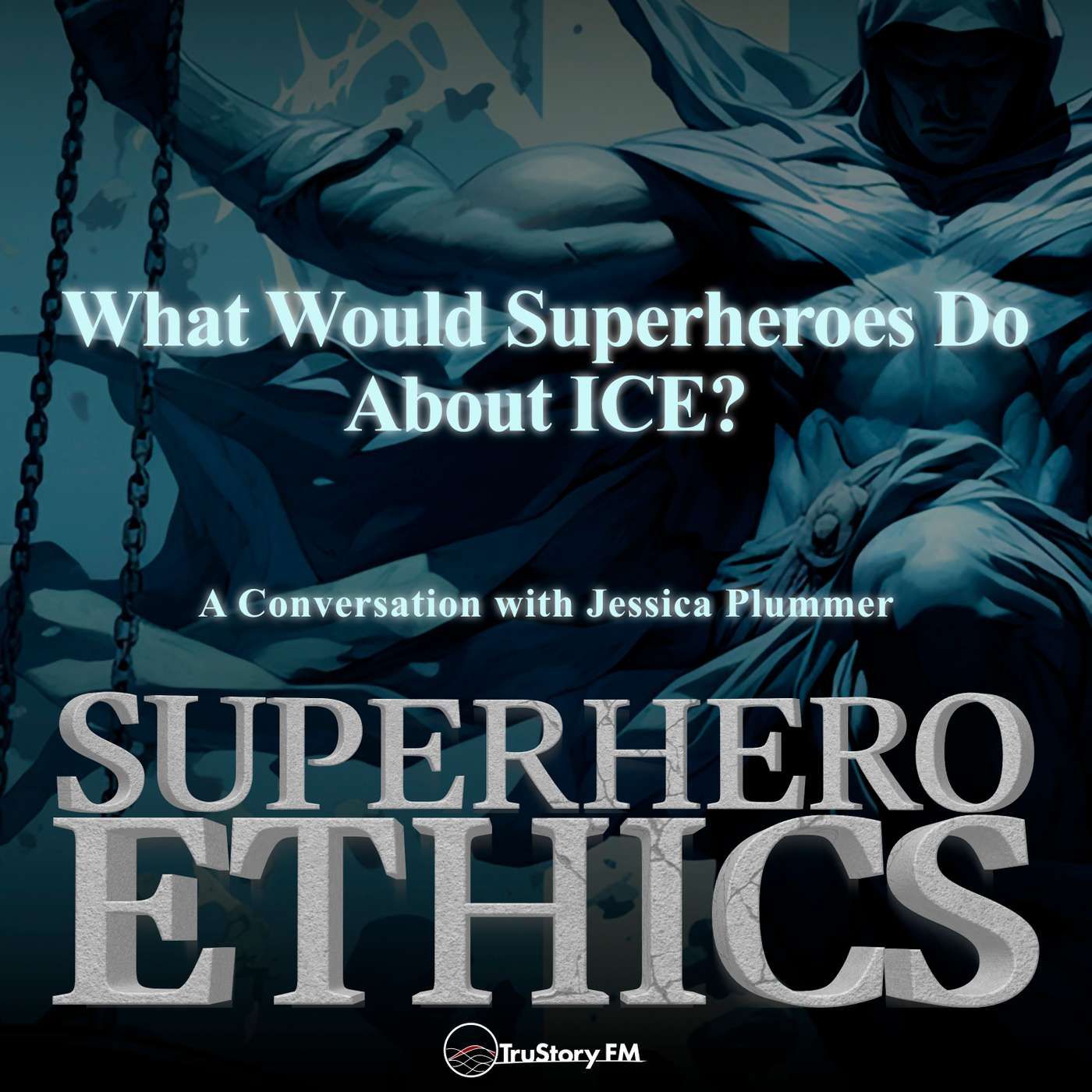
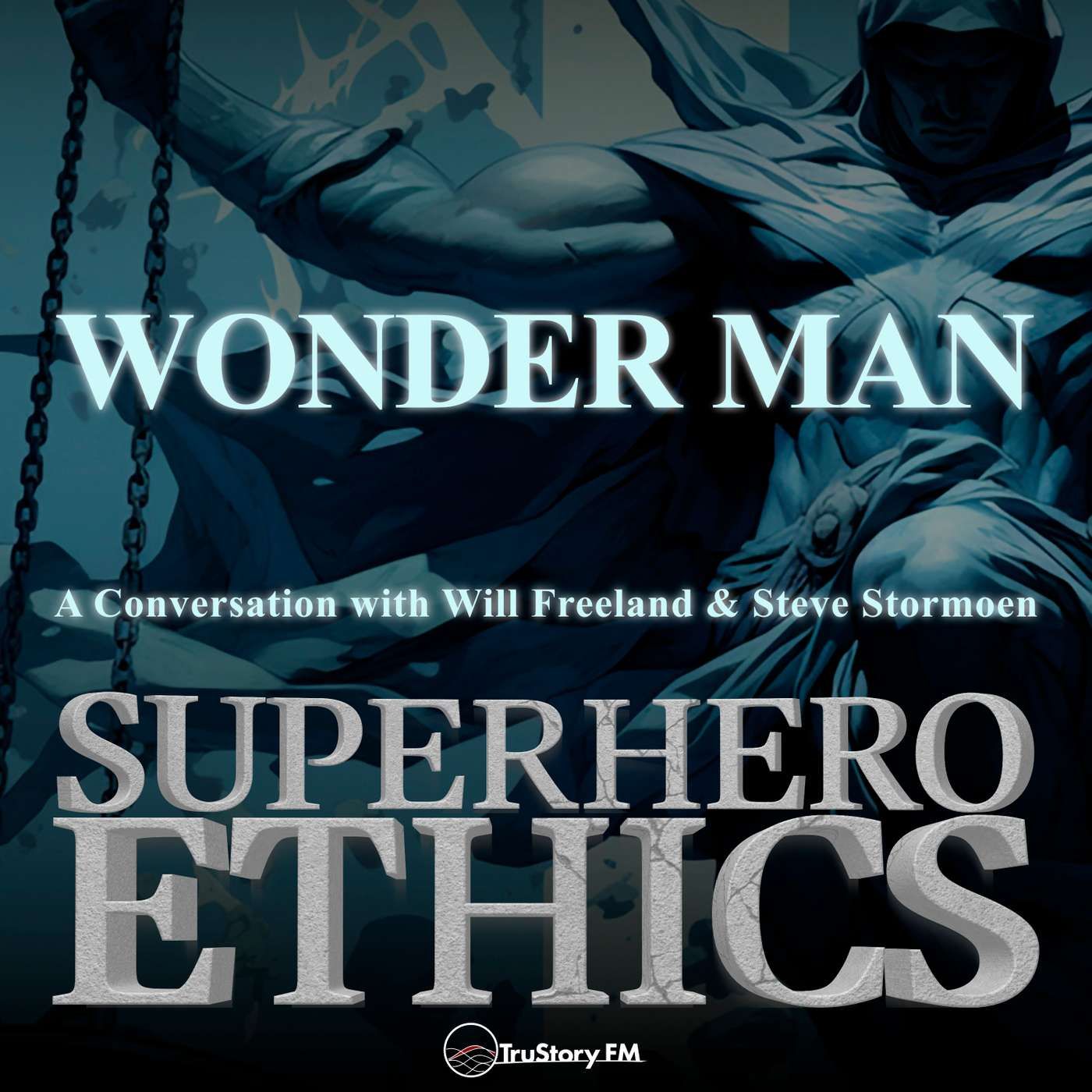
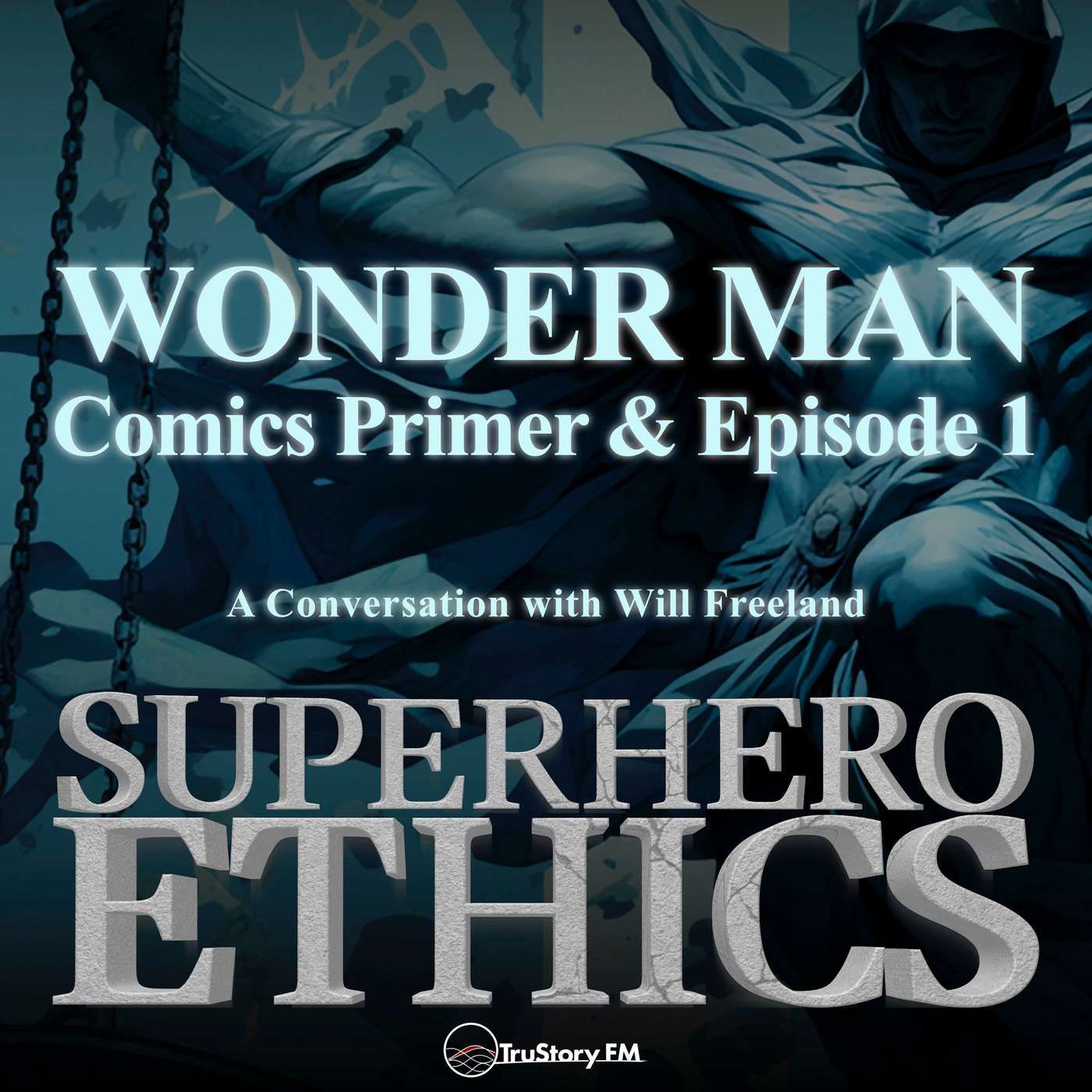
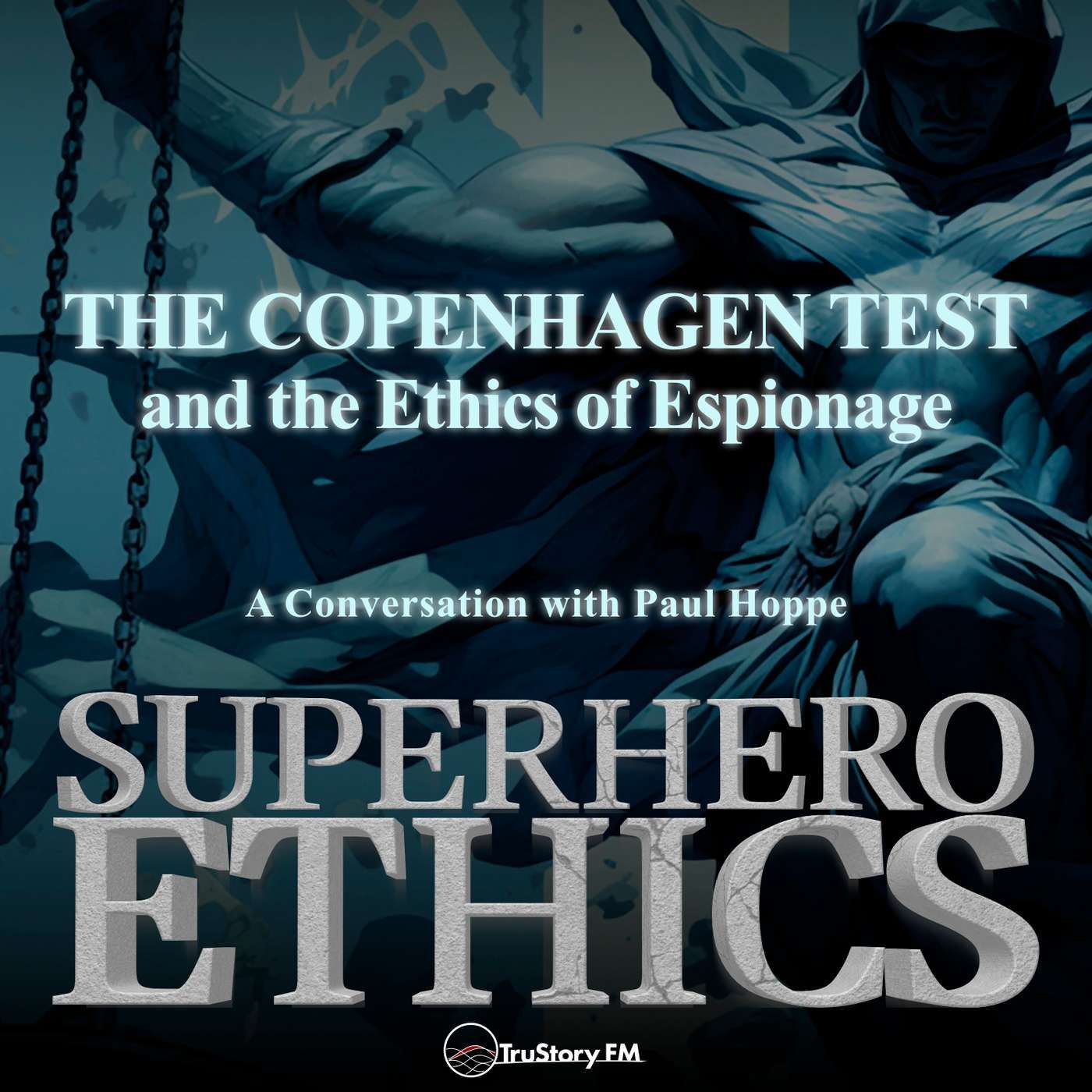
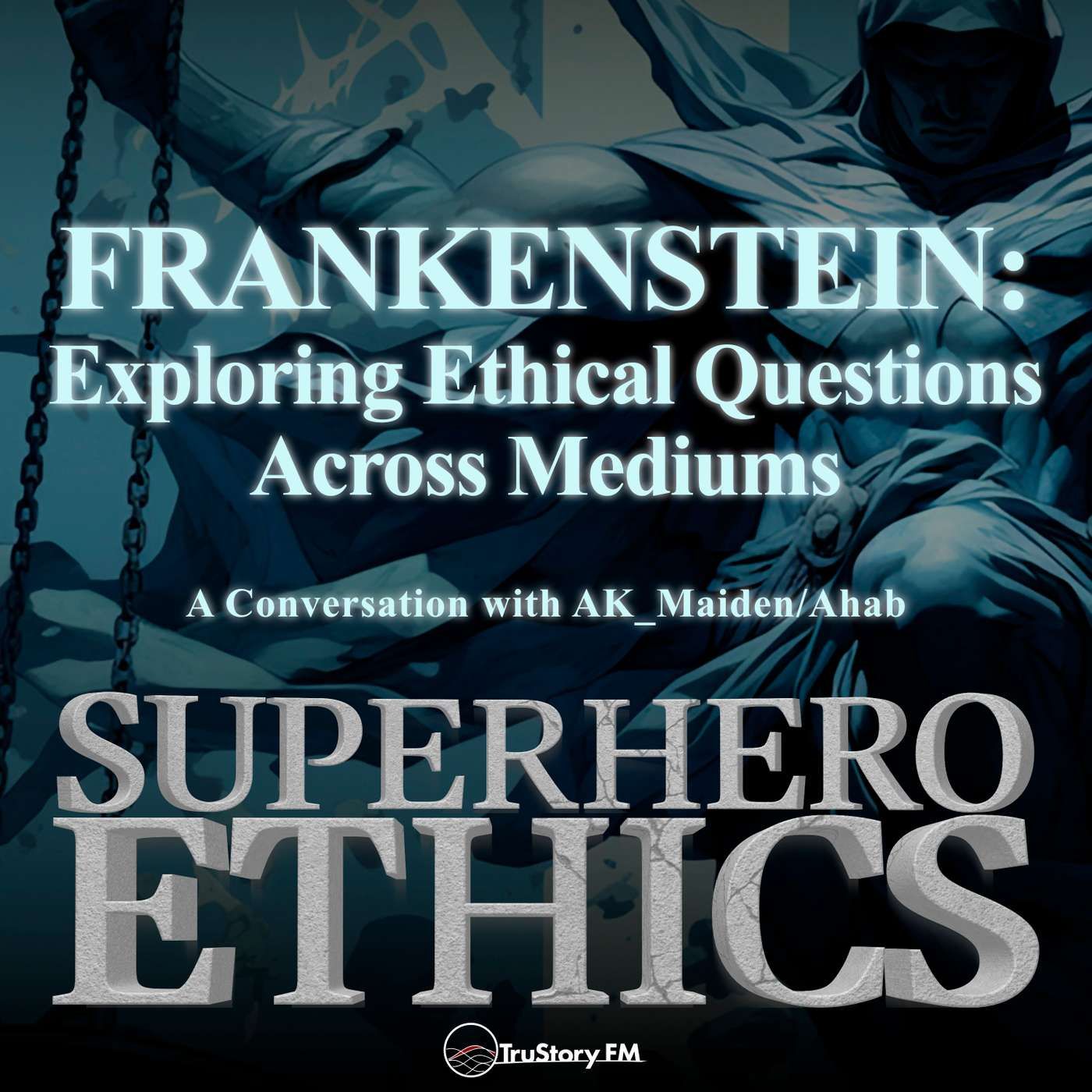
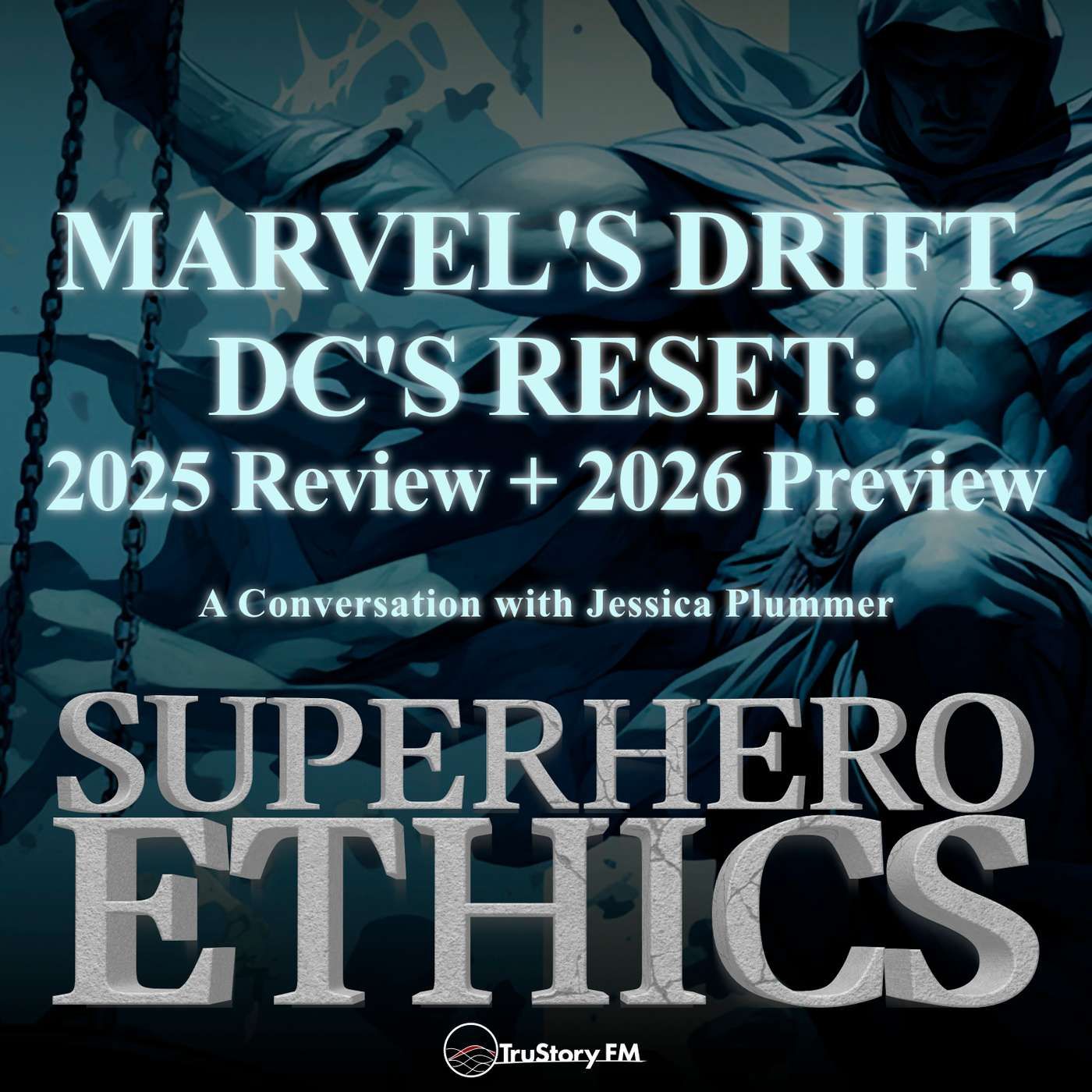
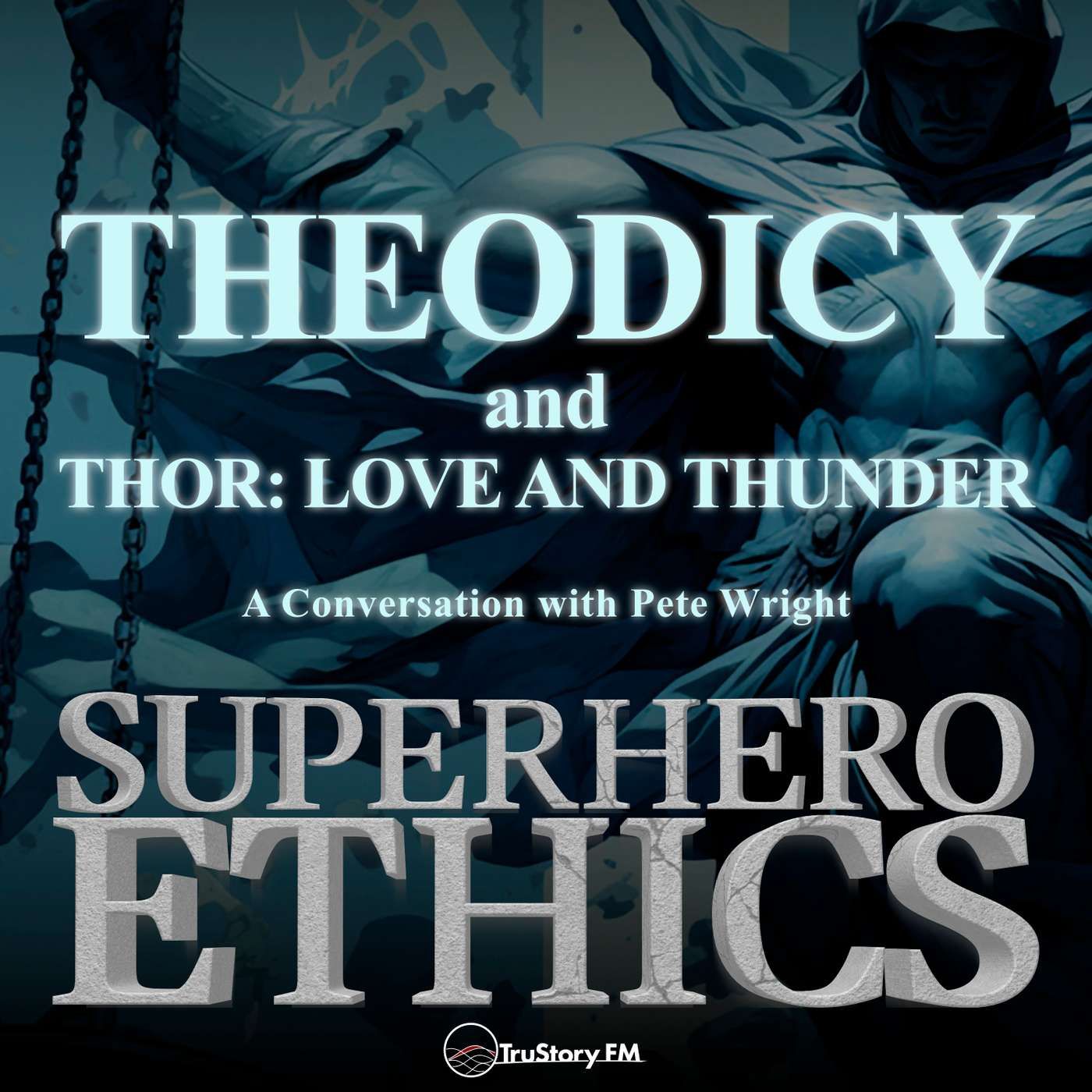
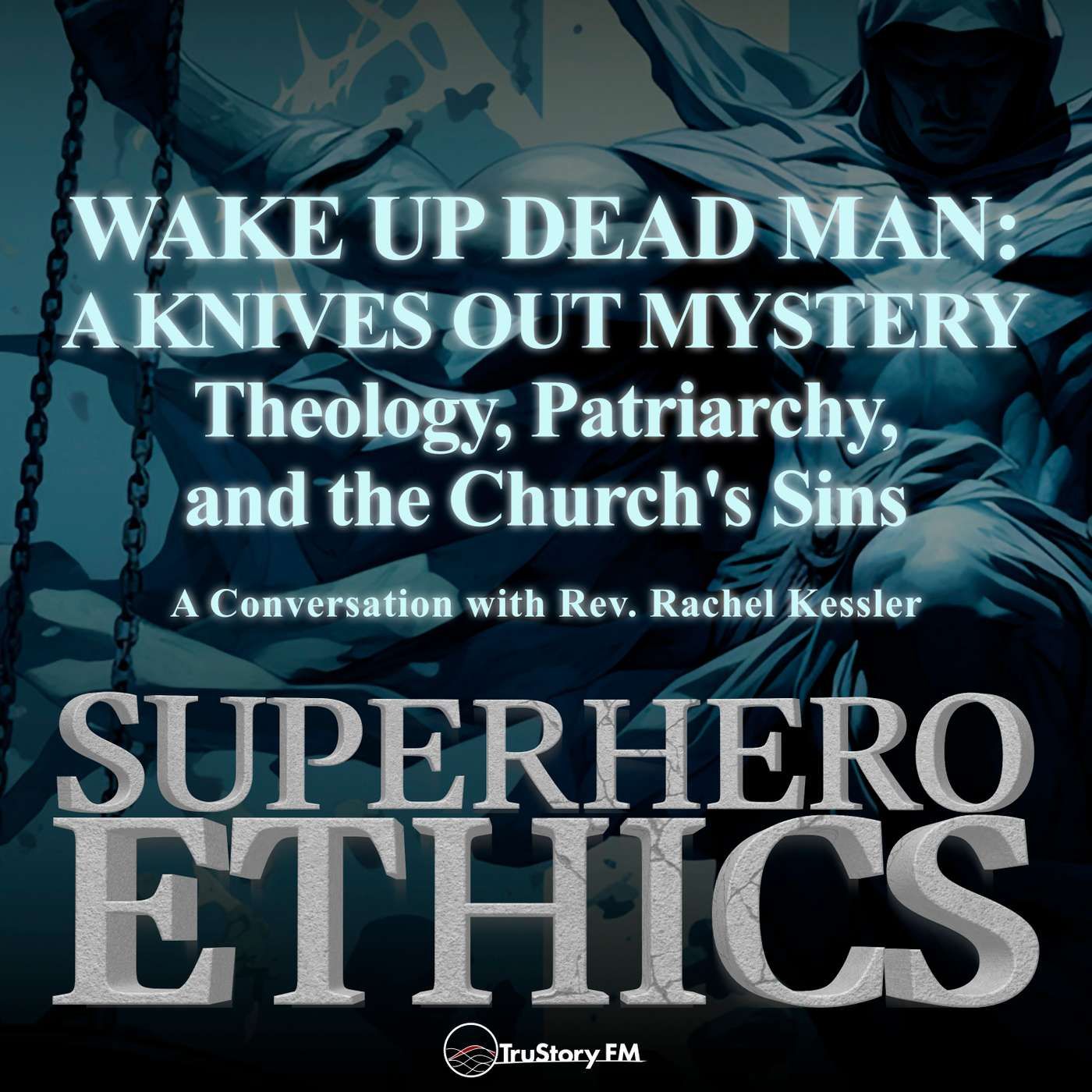
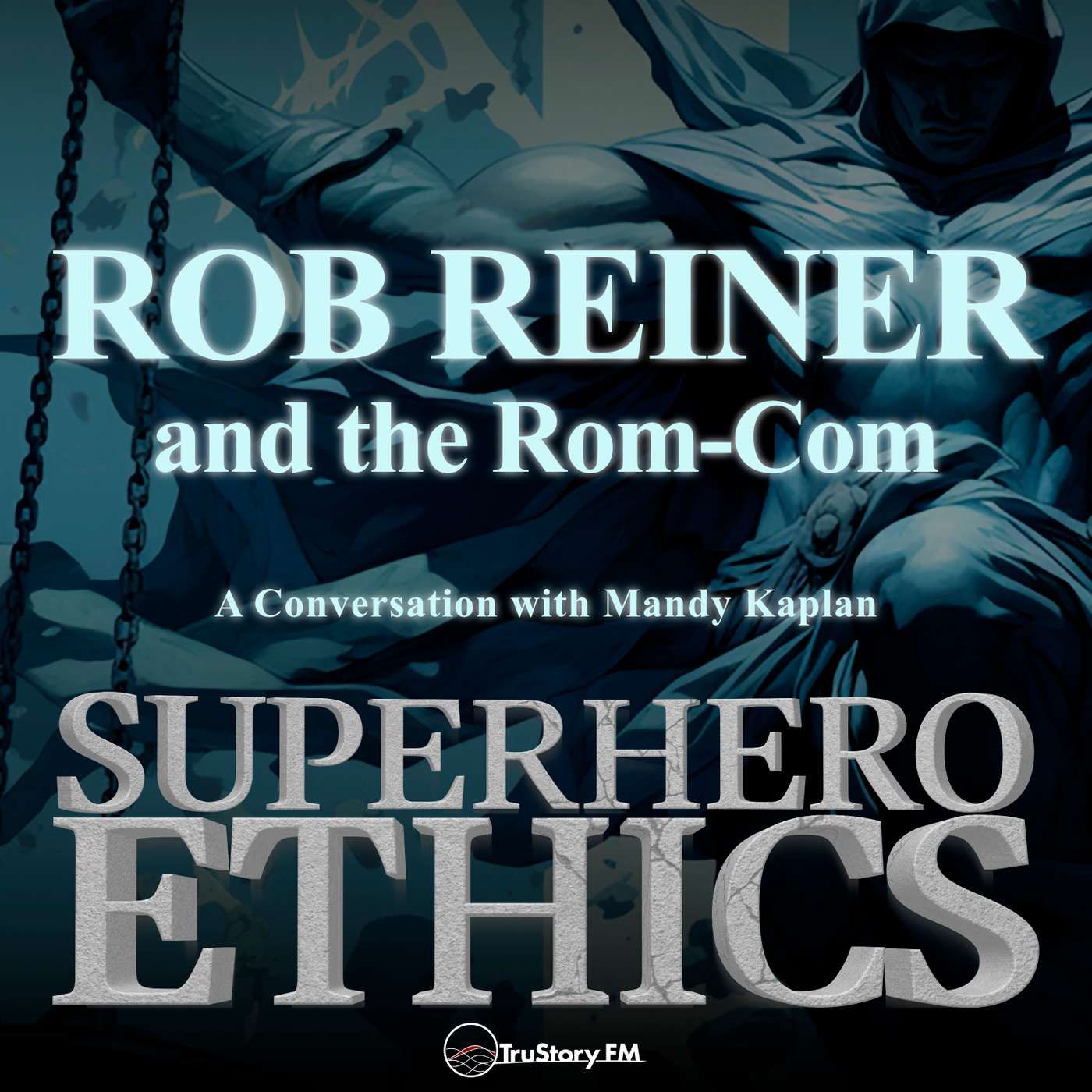
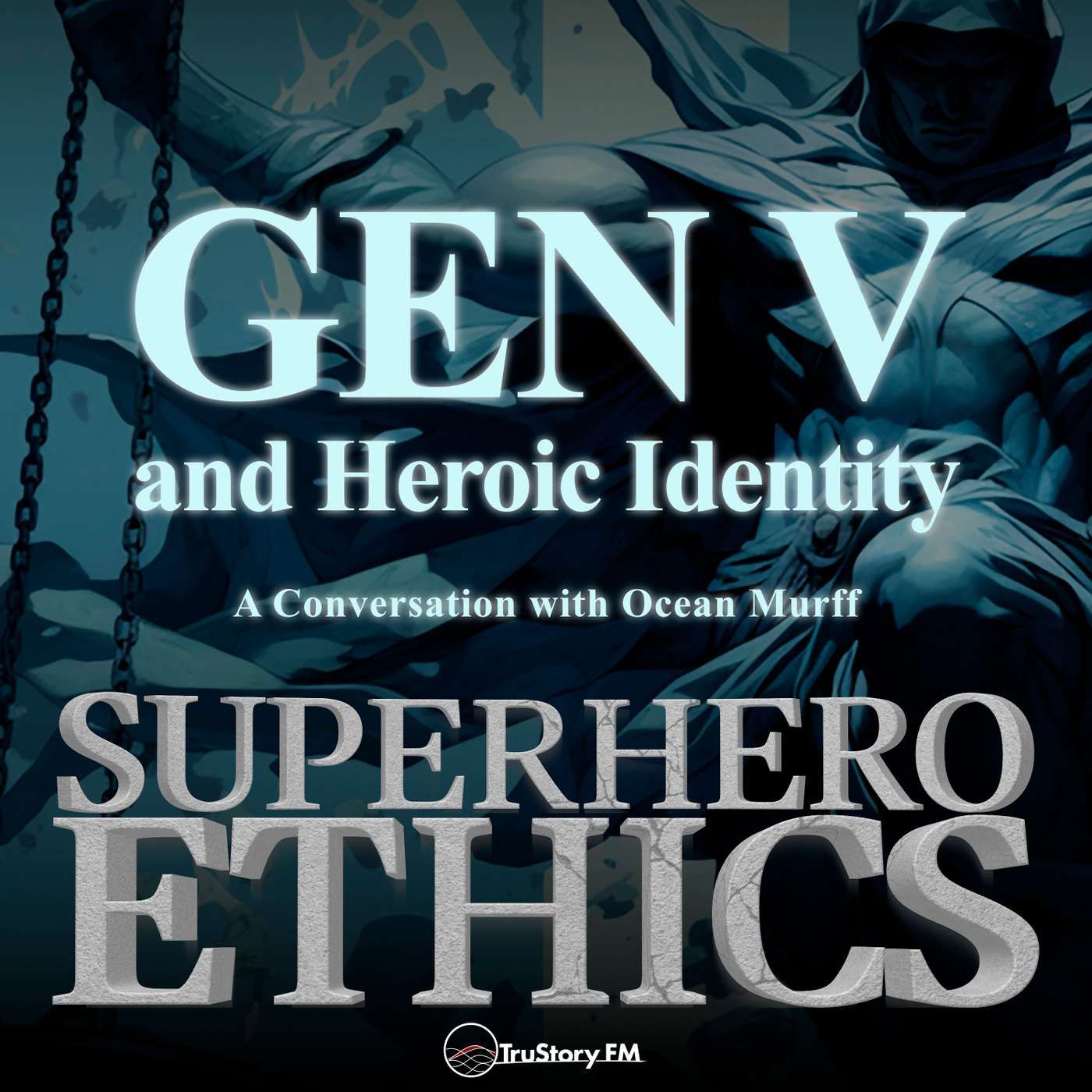
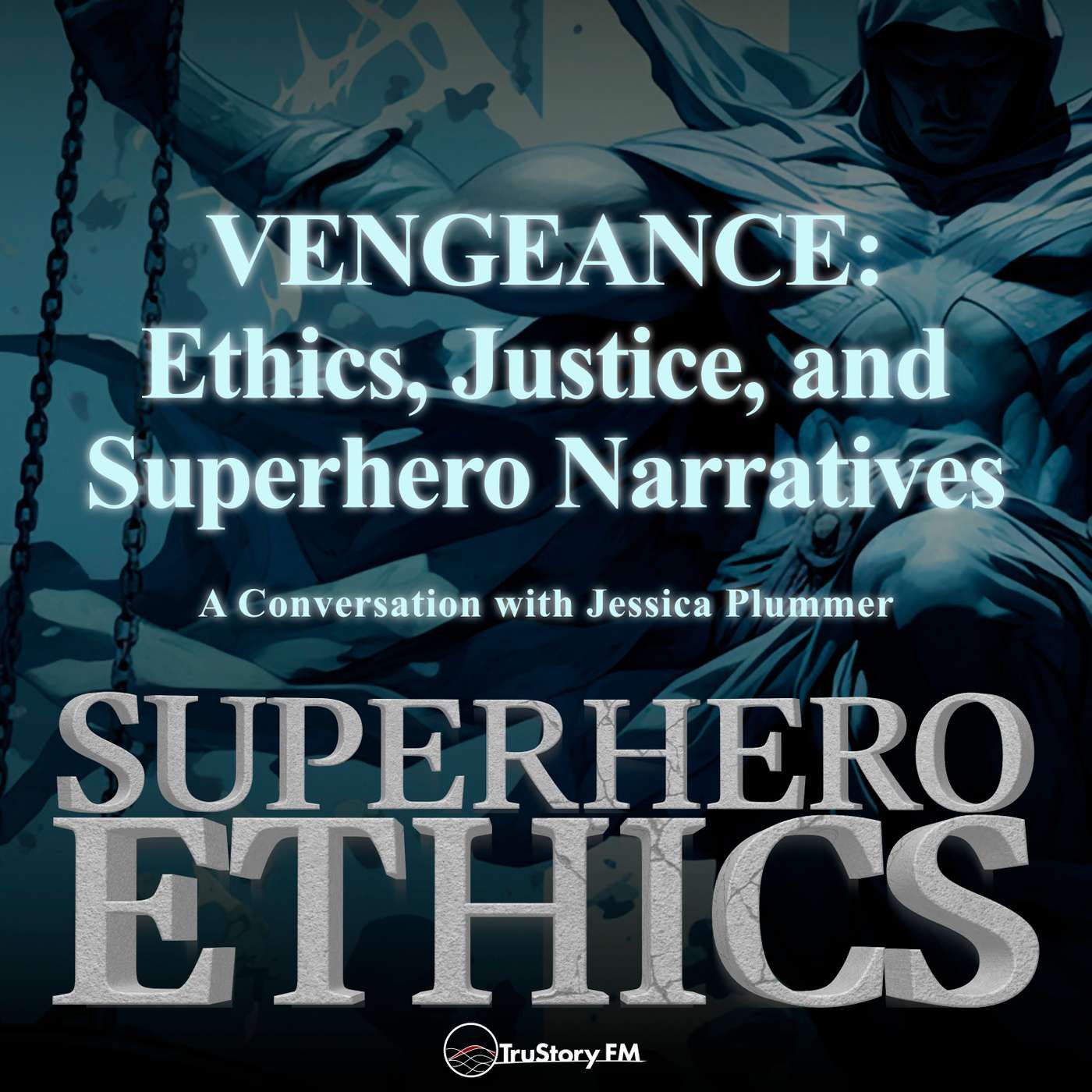
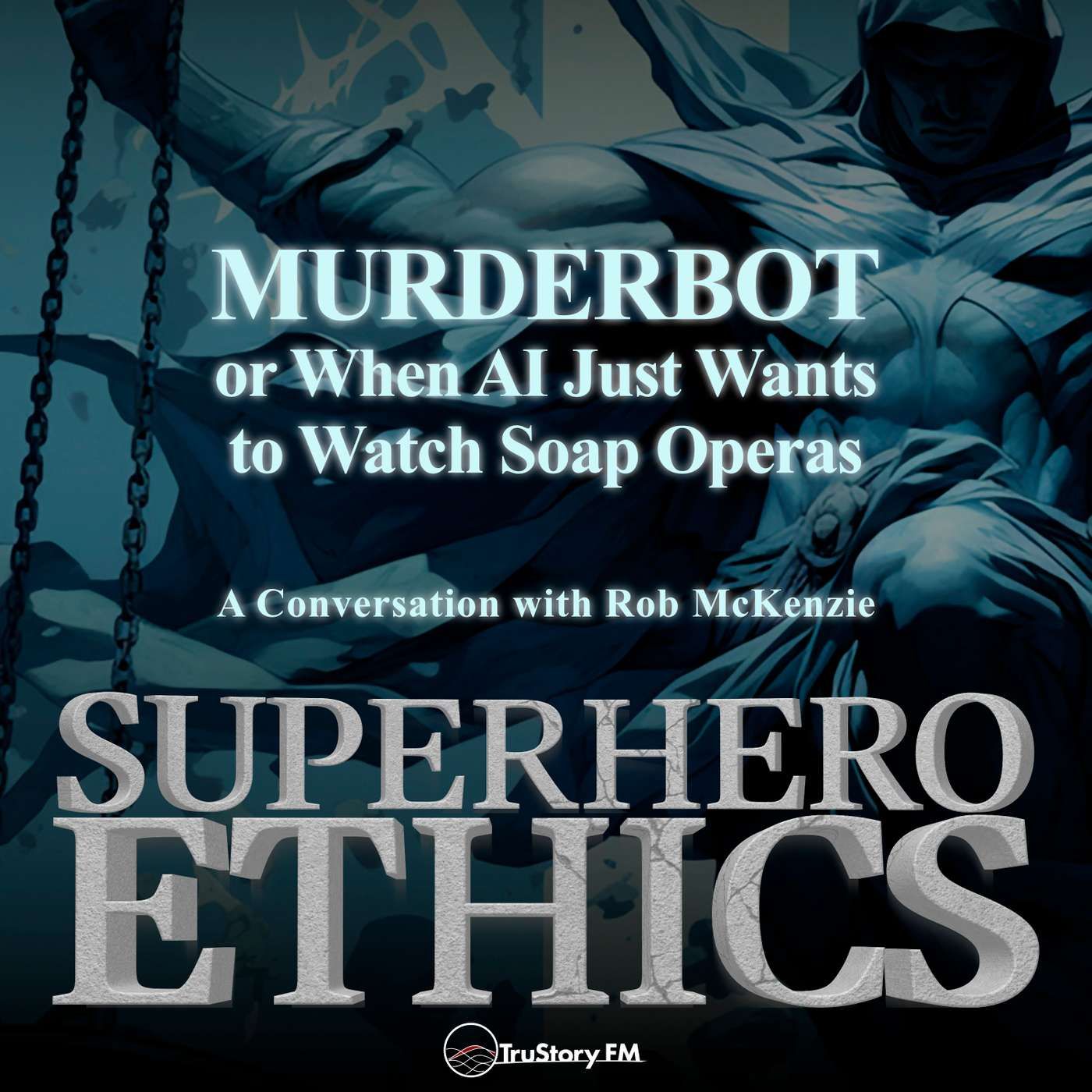
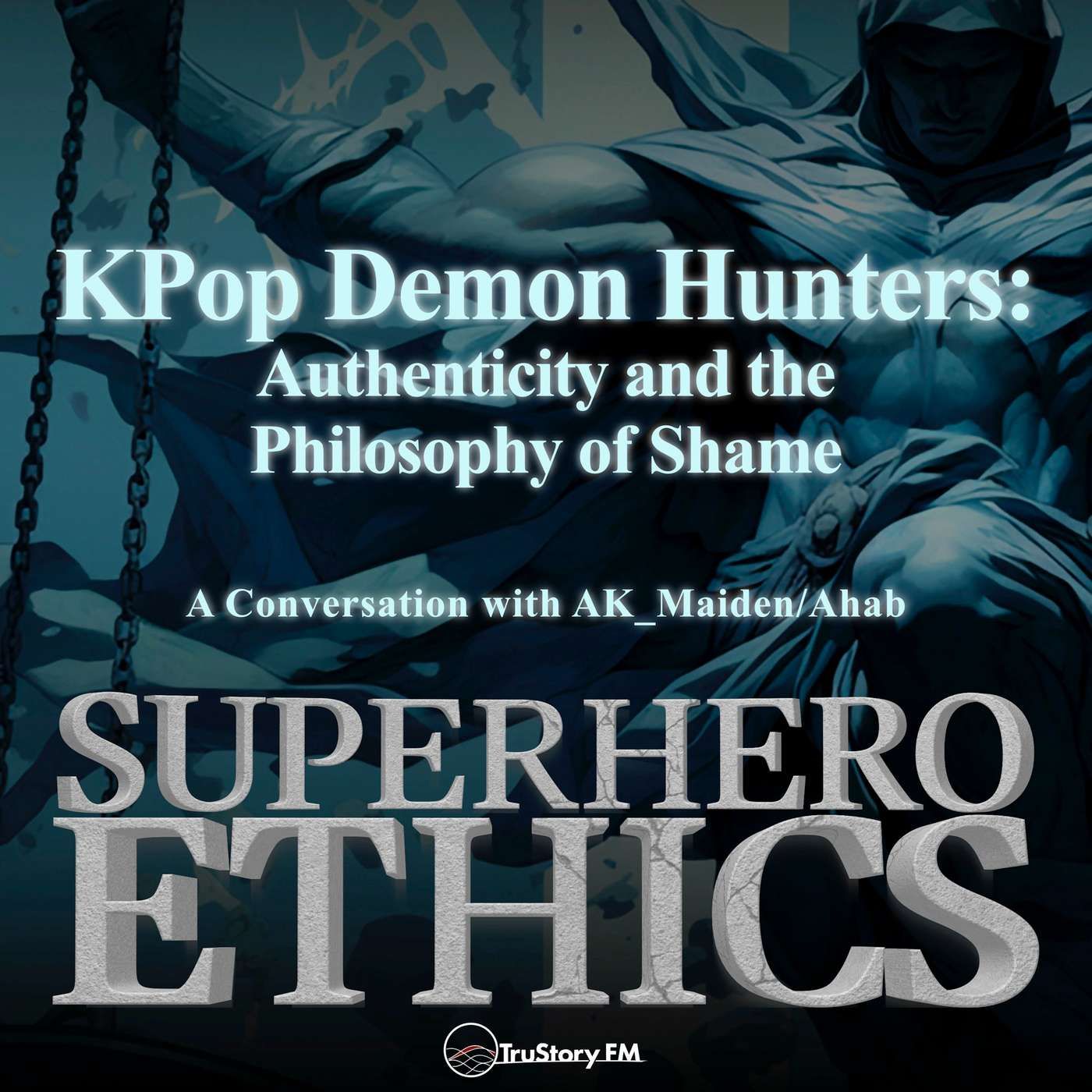
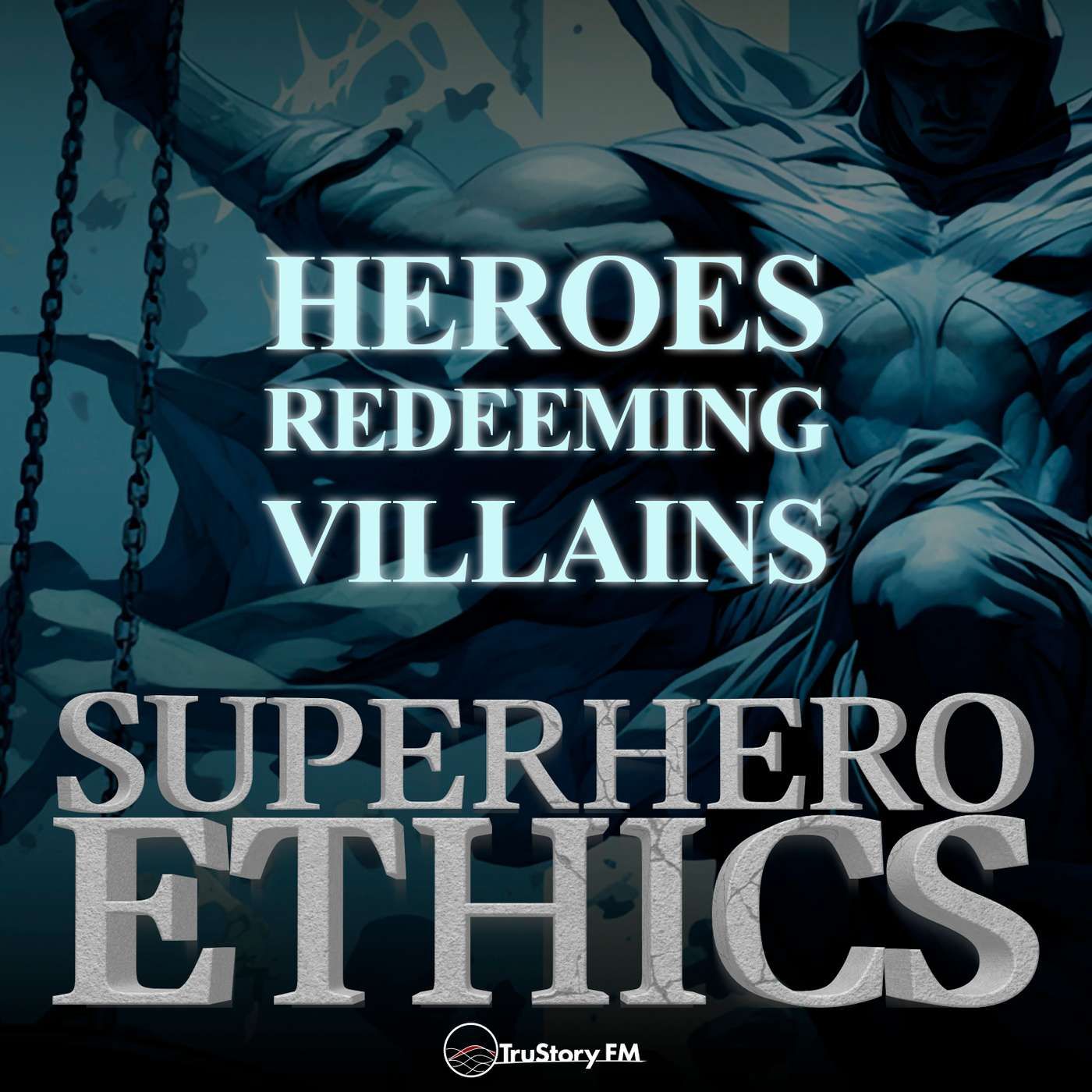
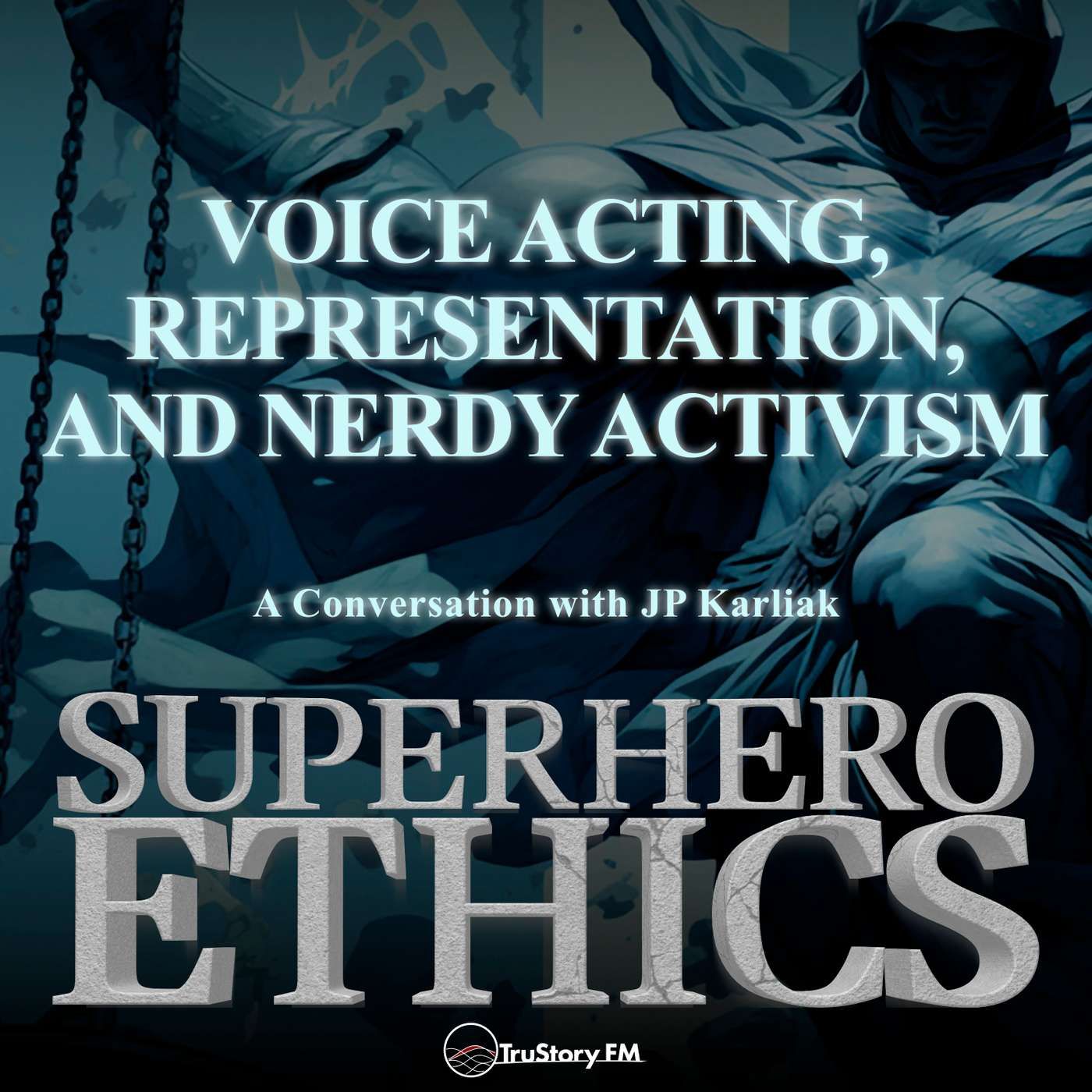
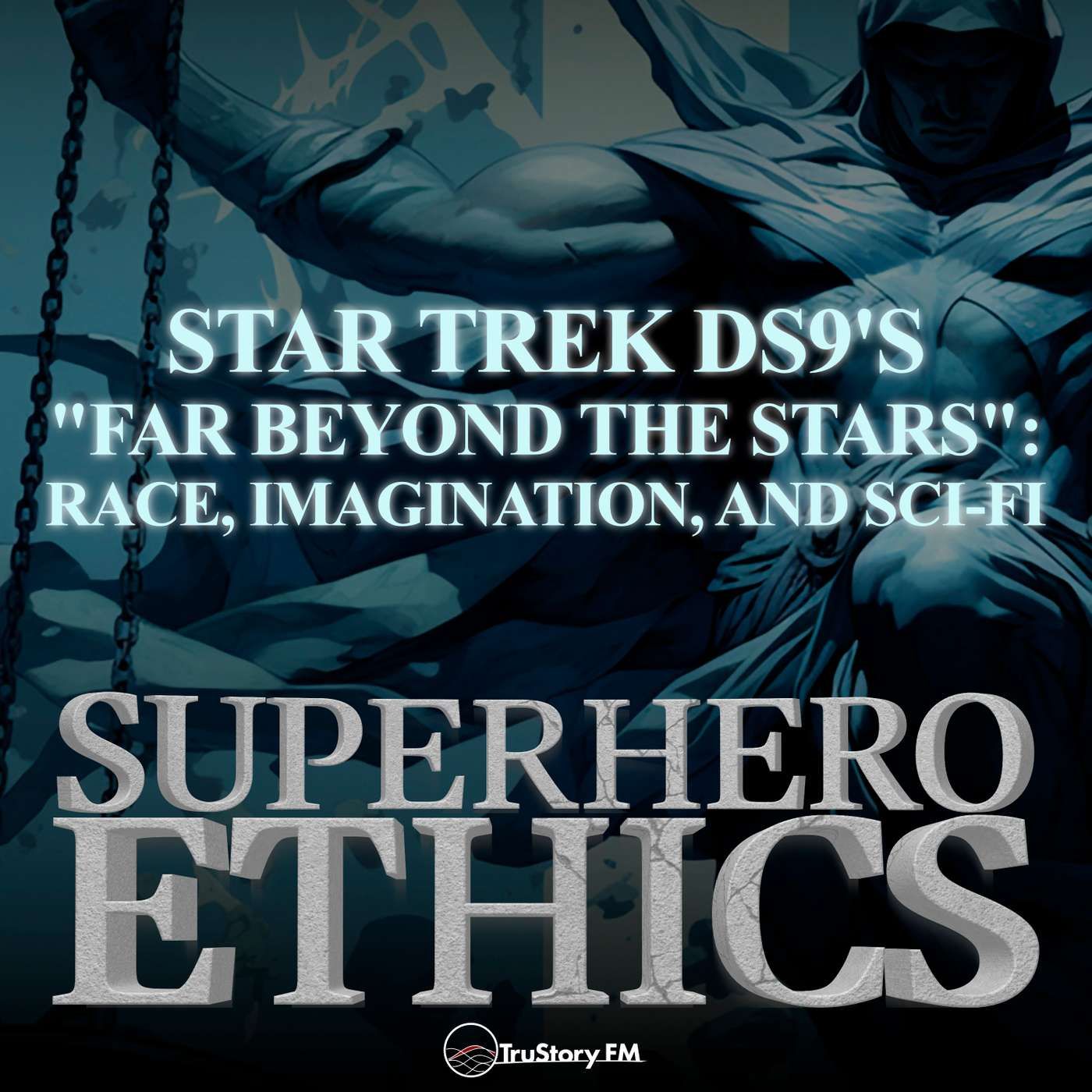
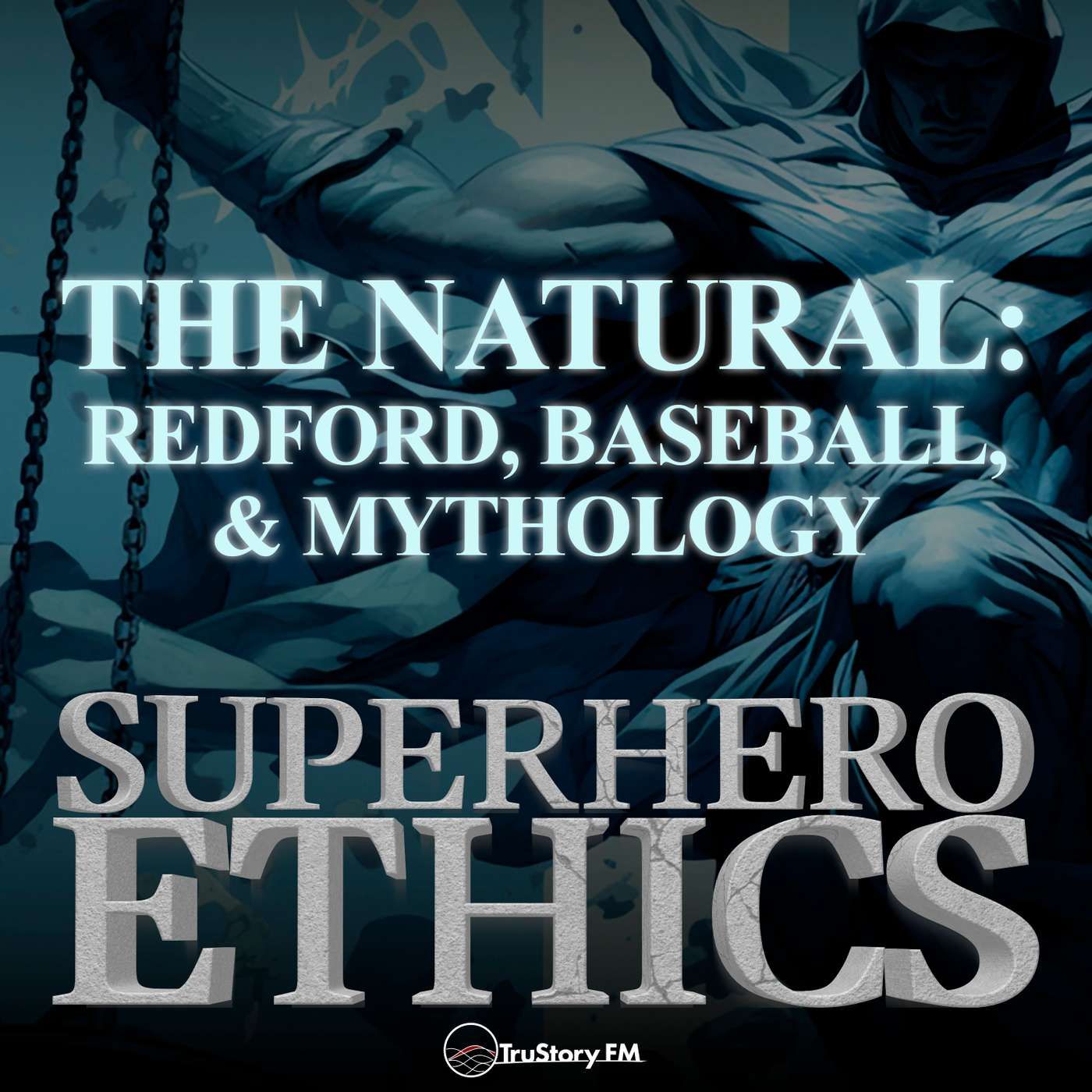
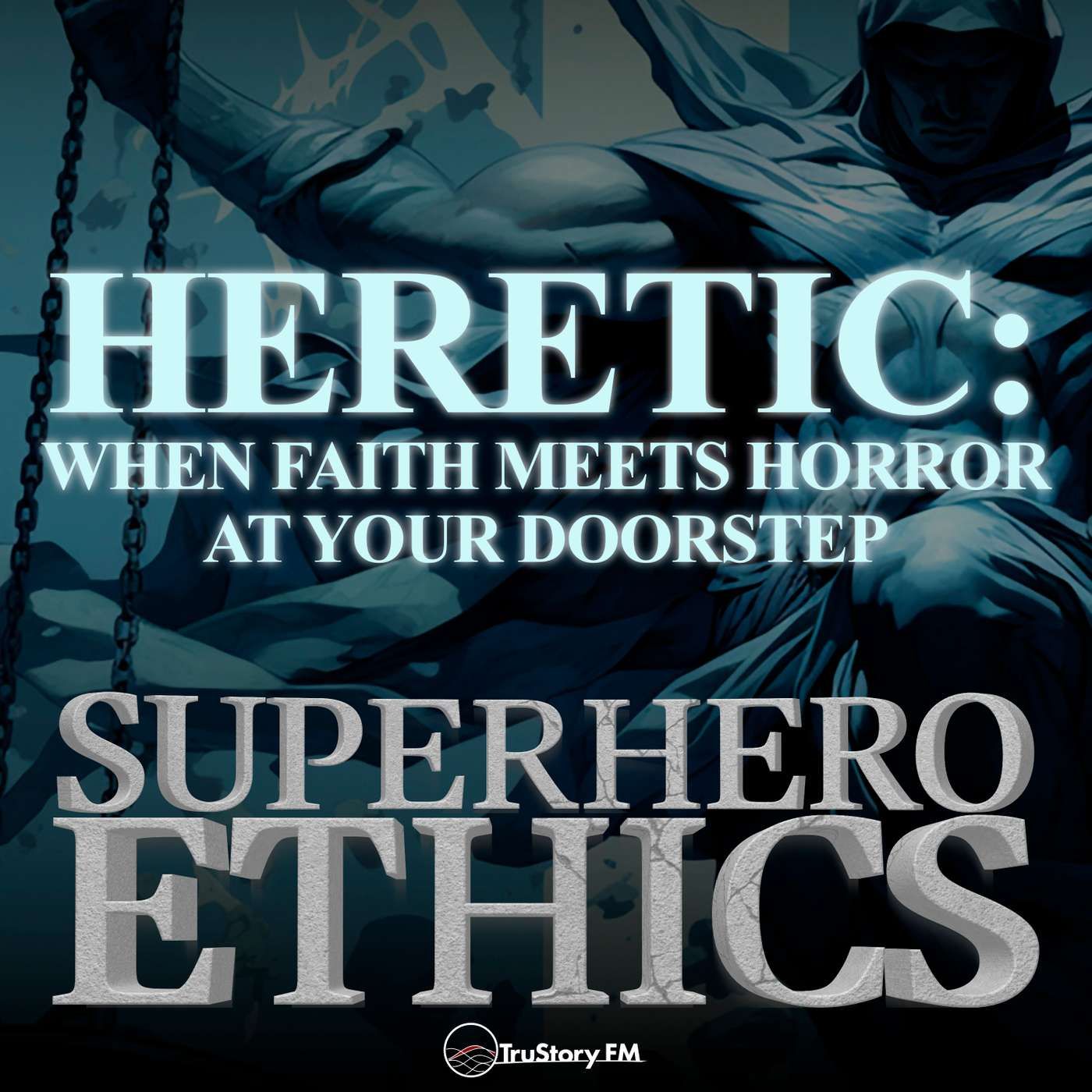
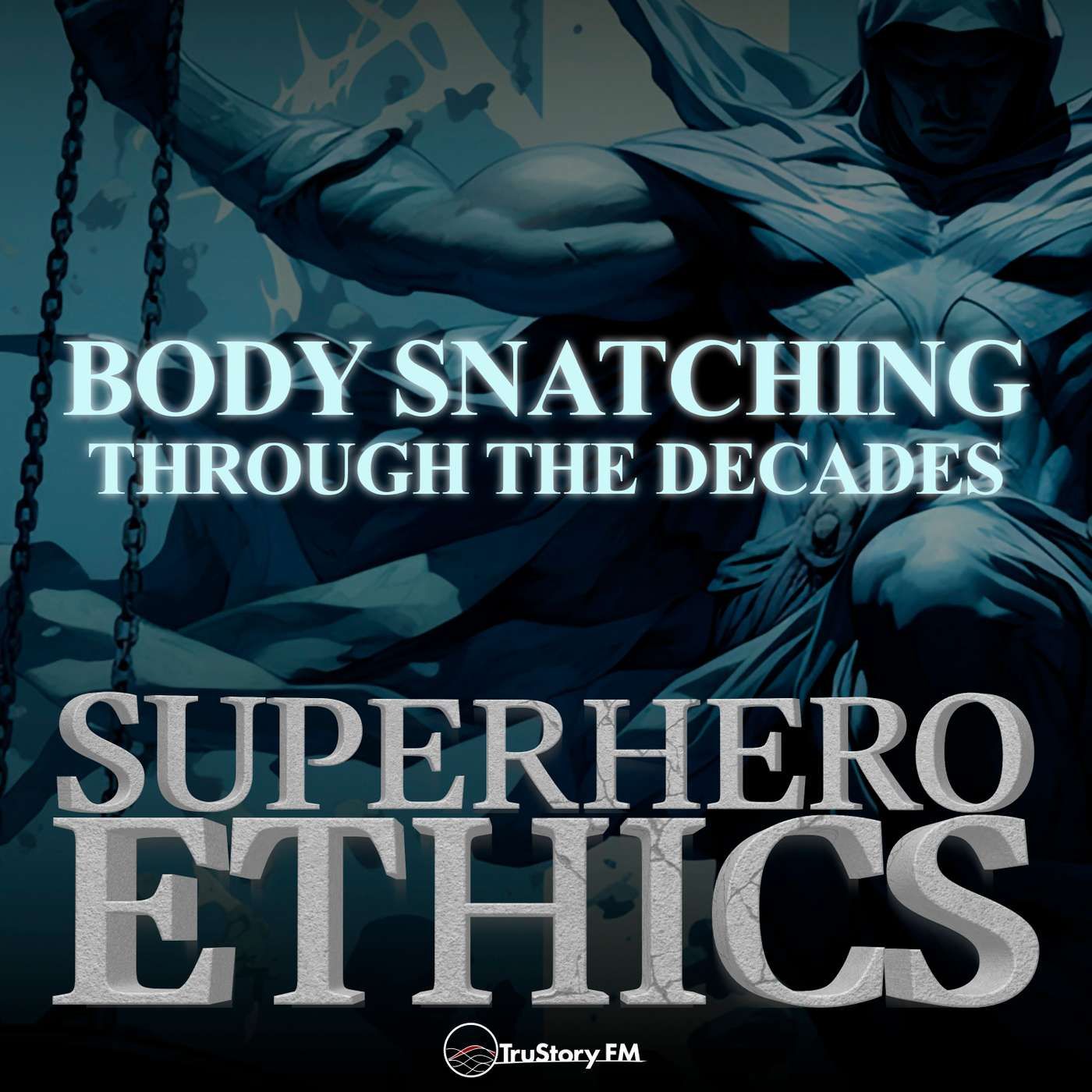



I thought this would be fertile ground for discussion. Then the first comment of the first episode I listened to (Cobra Kai s.3) consists of the hosts complaining about the race of the actors. Gave it another chance (WW84), didn't get any better. "Ethical" discussions are very thin, when they exist at all. Do not recommend.